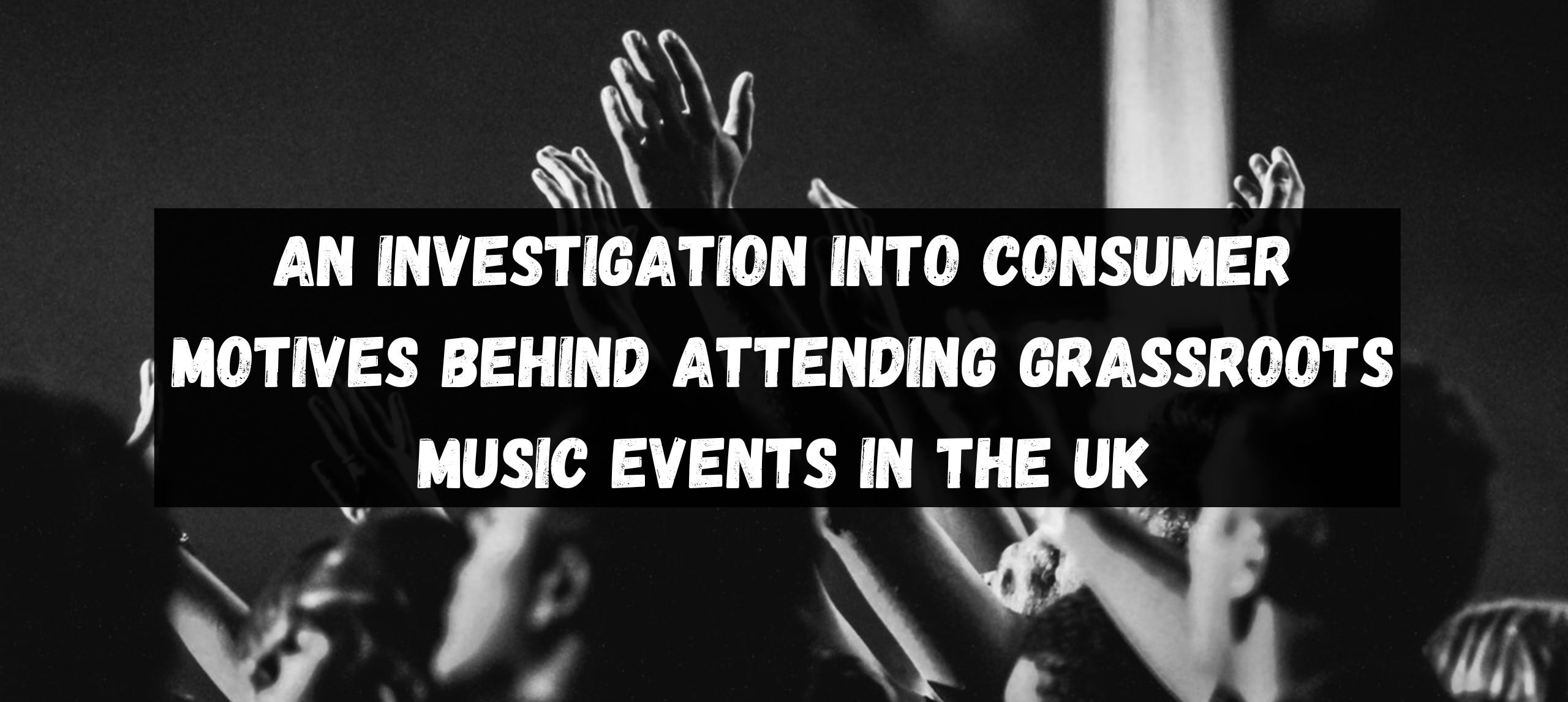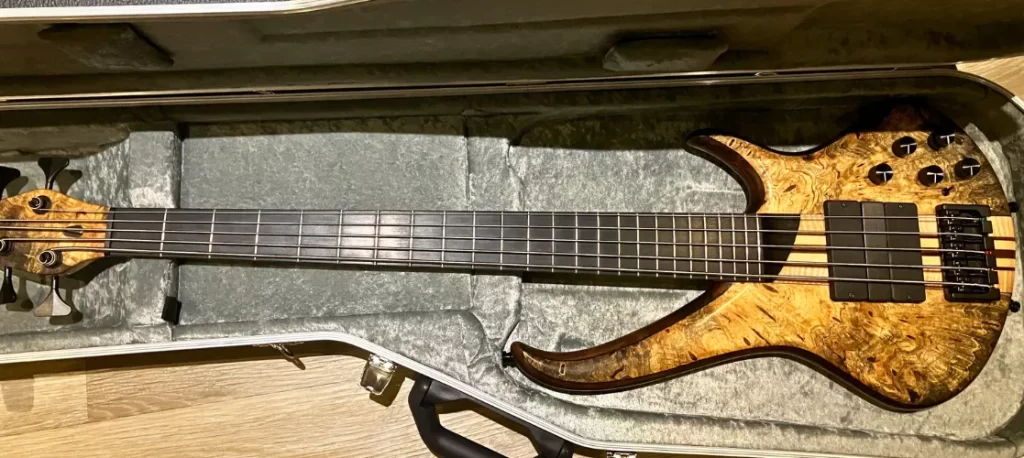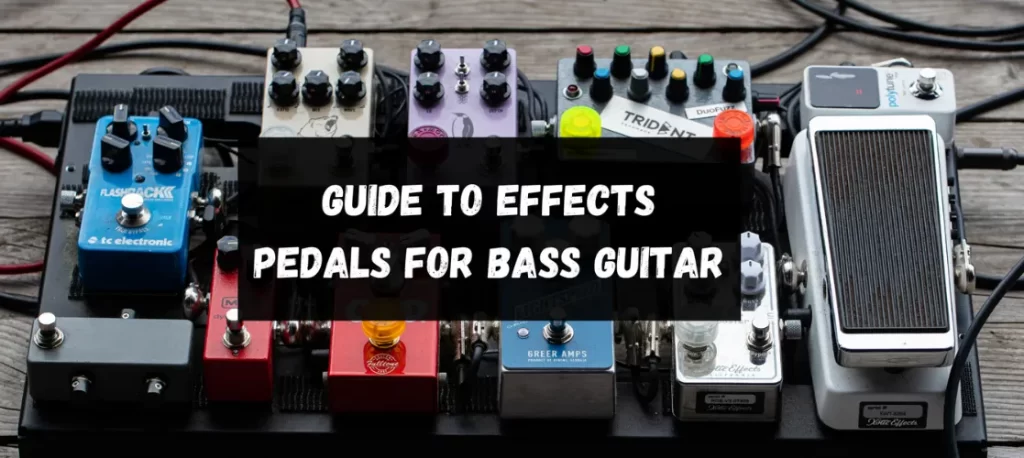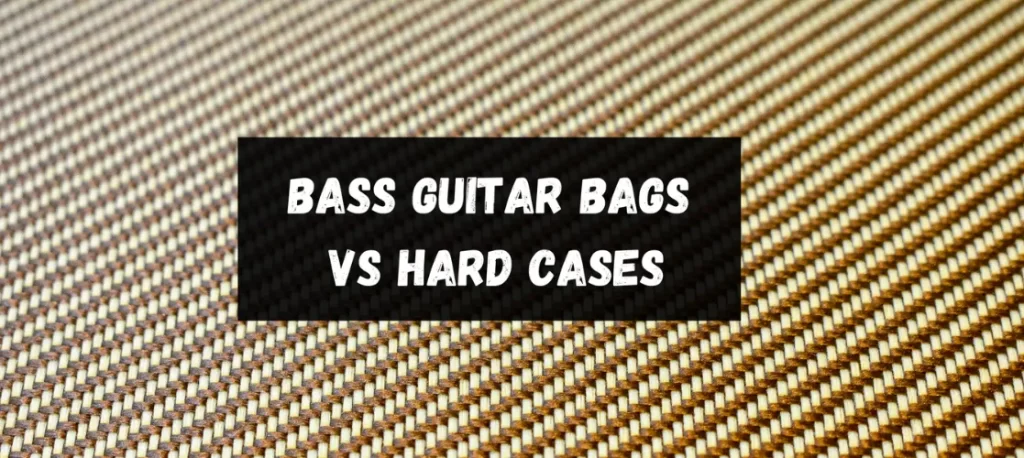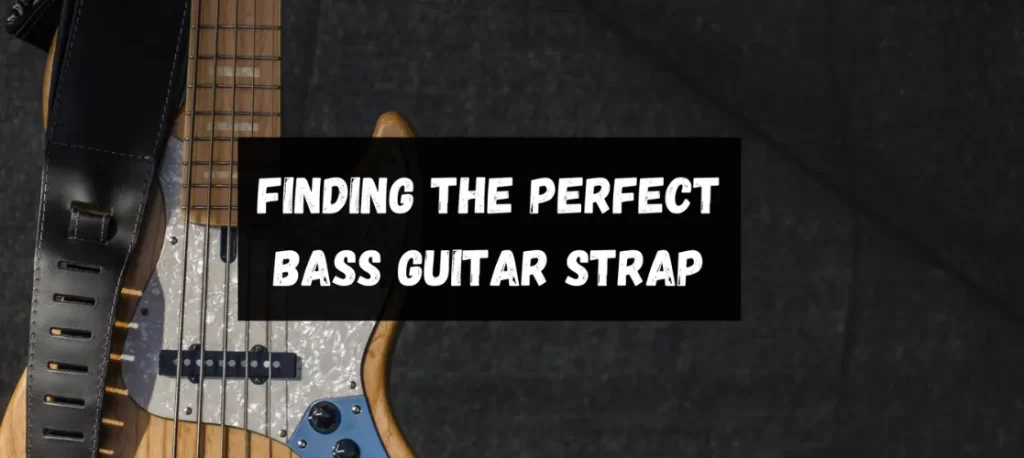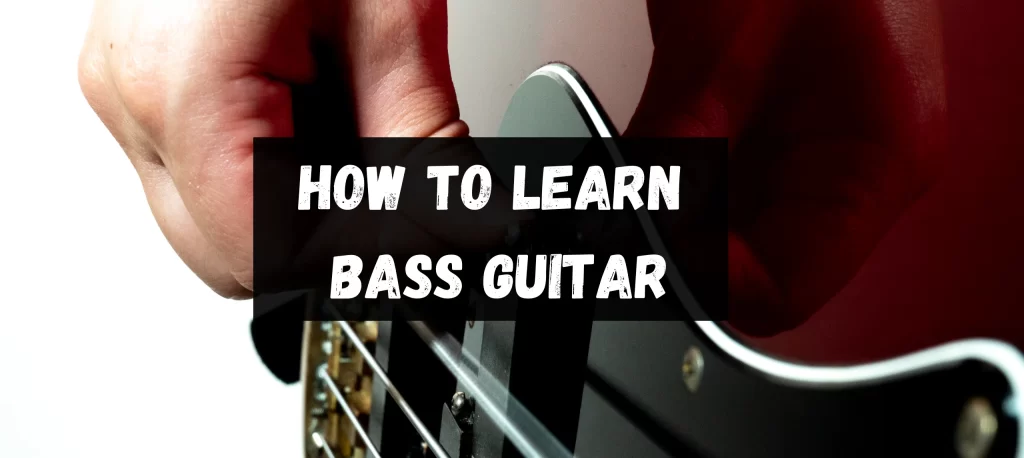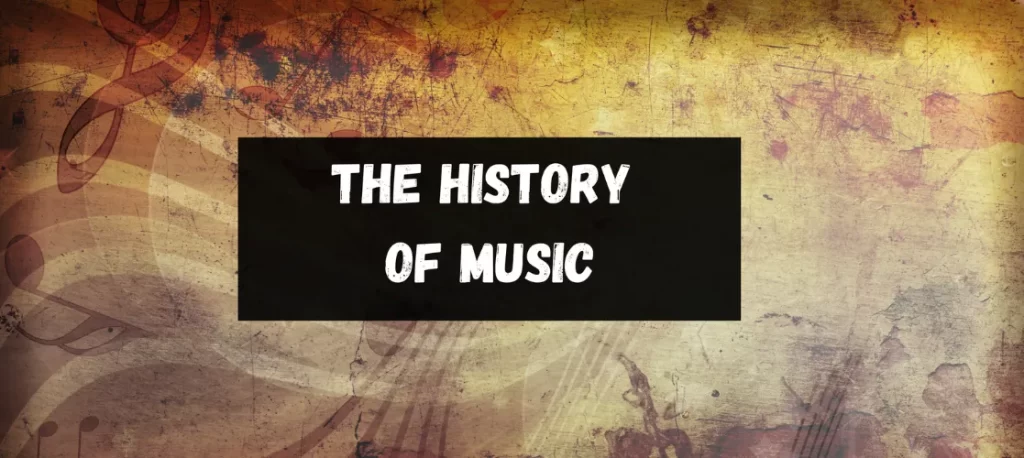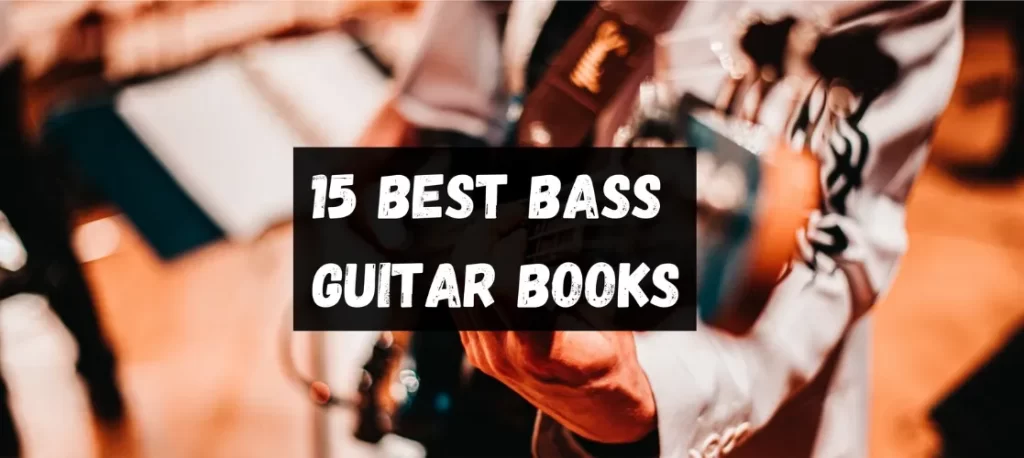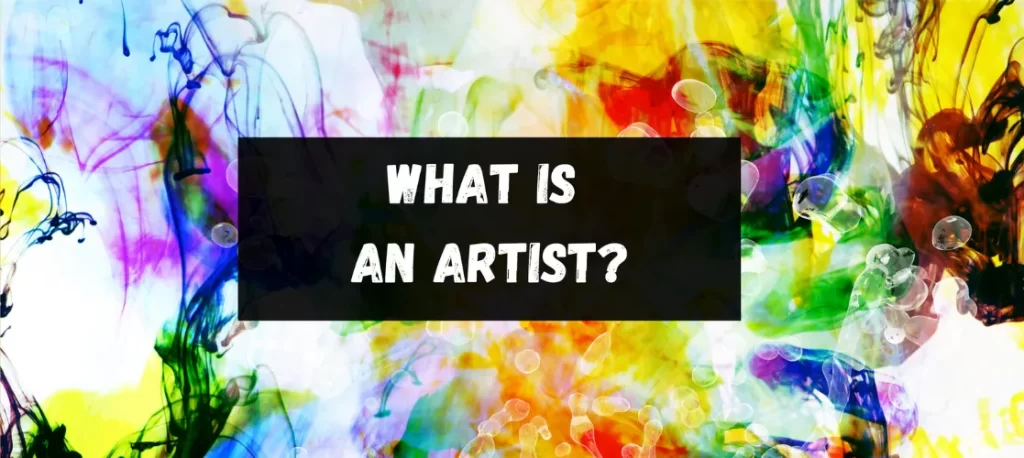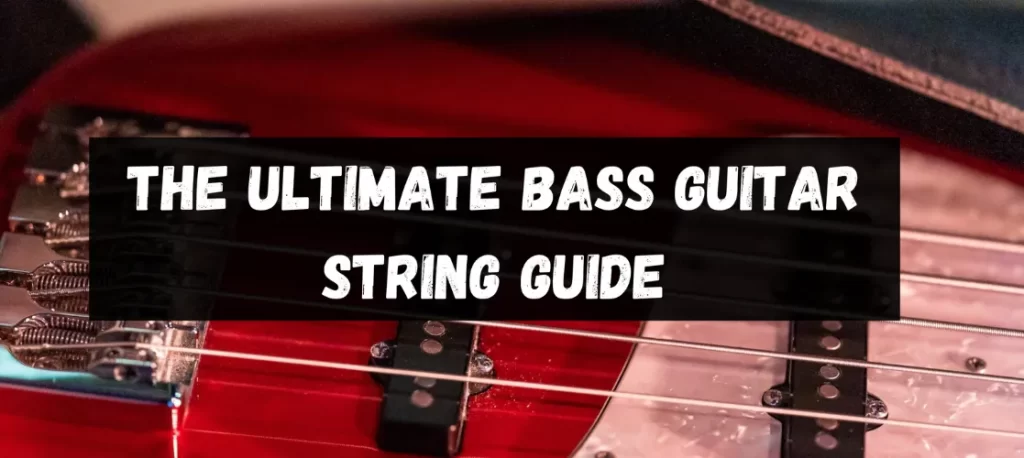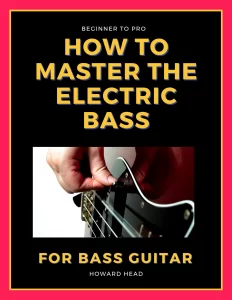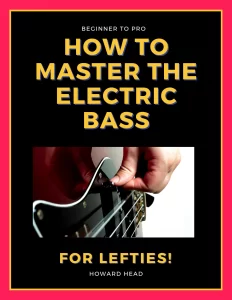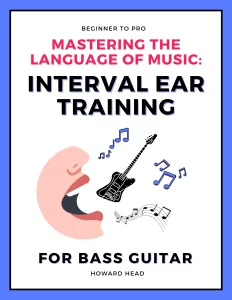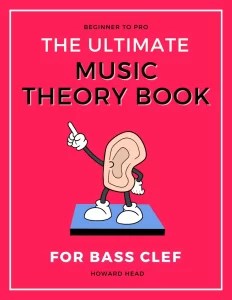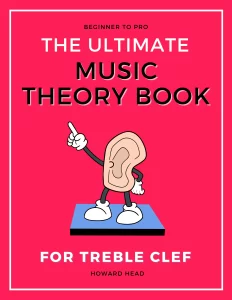May 5, 2022
Howard
- Introduction
- Research Aims
- Literature Review
3.1 Defining Music Event Types
3.11 Grassroots Music Events
3.12 Popular Music Events
3.13 Music Festivals
3.14 Music Event Infrastructure
3.2 Motivations to Attend Music Events
3.3 Differing Motivations by Segmentation
3.4 Techniques Employed
3.5 Music Festival Attendees and Popular Music Attendees - Research Design and Methodology
4.1 Research Design
4.2 Methodology
4.21 Qualitative Data Collection
4.22 Qualitative Data Analysis
4.3 Sampling - Primary Research Findings
5.1 Overview of Results
5.2 Motivations to Attend
5.3 Preventatives to Attend - Discussion of Research Findings
6.1 Discussion of Focus Groups
6.2 Music Event Motivations Comparison - Conclusion
- Recommendations
- List of References
- Appendices
10.1 Appendix 1: Brighton Focus Group
10.2 Appendix 2: Ipswich Focus Group
10.3 Appendix 3: London Focus Group
Abstract
Understanding consumer motives is an advantageous activity for event managers to undertake, and it should come as no surprise that extensive research has been conducted on music festivals within the music event literature. However, there has not been any such research carried out on grassroots events (a grassroots event generally has a small capacity and can take place in a grassroots venue, a pub or an arts space; they typically showcase the culture of the area and take risks by allowing up and coming artists to perform). This paper researches consumer motivations for attending, as well as preventatives to attending a grassroots music event. The purpose is to aid event managers to understand their consumers better so they can fulfil consumer preferences and provide better experiences to drive business. The data for this project was collected through focus groups and analysed qualitatively using thematic analysis. The findings revealed ten motivational themes: (Uniqueness; Intimacy; Being Part of a Community; The Artist/Supporting Friends; Authentic Music Experience; Good Drinks; Atmosphere; Supporting Your Local/Venue; Good Reputation; Cheap Night) and seven preventative themes (Bad Reputation; Fear of the Unknown/Intimacy; Expensive; Limited Facilities; No Good Drinks; Bad Location; Wrong Expectations). The findings indicated several consumer motivations unique to Grassroots events and gave insights into how event organisers can minimise the preventative themes. Together, these findings will aid event organisers and marketers to understand their audience better, tailor their content, and adapt their role to align with consumers’ motives to provide consumers with a fulfilling experience and hopefully prevent the closure of grassroots venues and event spaces.
1. Introduction
Cultural events have the power to validate community groups, introduce new ideas and establish new hybridised identities (Bowdin, 2010). Hybridisation is where “cultures may stay national, but what the ‘national’ is, becomes changed by global inputs” (Martell, 2017, p.21) to create a hybridised culture, which is generally seen as having a positive effect on society due to there being greater unity amongst the population. These positive impacts can be amplified when communities create, perform, listen and appraise music at an event due to their social and cultural identities being expressed (MacDonald, 2002). The cultural values derived from music events can be conceptualised as “musical creativity, cultural vibrancy and talent development,” with the social values being “social capital, public engagement and identity” (Van der Hoeven, 2019, p.266).
Music events also contribute significantly to the UK economy. The UK’s events industry is estimated to generate £70 billion, and music events constitute the second- largest contribution within the entire events industry with 17.6 billion (BVEP, 2020). In 2018, “29.8 million people attended live music events in the UK, which is a rise of 2% from 29.1 million in 2017” (BVEP, 2020, p.70), showing that the live music events industry is expanding is likely to continue to be important in the future. Many professions rely on the industry and include people within the music sector (music creators, music retailers, recorded music, music representatives, music publishing and live music), and the hospitality and transport sectors (UKMusic, 2019). Historically, music events have acted as promotional content to encourage consumers to buy an artist’s record. However, disruptive technologies and piracy removed the value of recorded music with the advent of the mp3 format and disrupted the entire industry. The recording industry now heavily relies on music events as artists can earn nearly 90% of their total income from music performances, which subsequently feeds to major labels/managers due to the ‘360 degree’ contract. For example, in 2016, Beyonce earned $54.7 million from touring, accounting for 88% of her total incom of $62.1 million (Billboard, 2016). It is understandable why the music industry would want to expand the music events sector.
Events are categorised in terms of their size; they include: (small) Local events (Grassroots venues), Major events (popular music events and most festivals), Hallmark events (famous festivals, e.g. The Isle of Wight Festival and The Glastonbury Festival) and Mega-events (where the attendance should exceed 1 million in order to clarify, and there have been no music events in the UK that have undertaken this feat) (Bowdin, 2010, Getz, 2005). Grassroot music events play a significant role in nurturing the industry’s talent by providing places for up and coming artists to gain experience, providing places for art expression amongst the community and supporting the industries infrastructure. However, due to “increased rent prices, noise complaints and lack of football”, many venues have been forced to close down, with an estimated “35% of grassroots venues closing in the last ten years” (BVEP, 2020, p.70). This downward trend has also been accelerated by the Covid 19 lockdown, where the restrictions forced the temporary shutting down of all events, then as restrictions lifted, limited business due to social distancing effecting event capacities.
Music events can also bring awareness and help ‘sell a region’ by attracting tourists, industries and investments (Liu & Chen, 2007). These events become iconic to the destination, as summarised by Homan:
“The famous jazz clubs of New York or the ‘swinging’ London night clubs of the 1960s remain vivid examples of how music venues can come to represent distinct regional experiences, as signifiers of a wider cultural milieu.” (Homan, 2011, p.105).
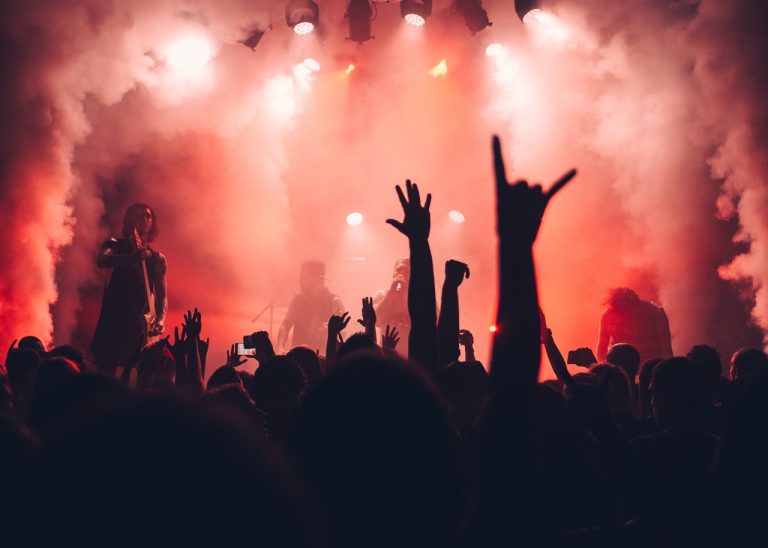
In London, UK, famous clubs could be The Ronnie Scotts Jazz Club, The 100 Club, The Flamingo Club or The Roundhouse.
With all of these apparent benefits that music events bring to culture, the economy, businesses and destinations through place branding and destination marketing (Getz, 2012), it is essential to understand what motives drive consumers to grassroots music events. Grassroots venues and event spaces are vital to the livelihood of the music industry and music events industry, and many are at threat of permanent closure. It would be of great importance for grassroots event managers to better understand consumer motives for attending their events so that they can tailor their programmes, make better-informed marketing decisions, and bring in more business to stop the threat of closure. Similarly, it would also be essential to understand consumers’ lack of motives for attending to see whether factors concerning consumer appeal also threaten venue closure.
2. Research Aims
There has been a significant amount of research into understanding consumer motives for attending a music festival (Formica & Uysal, 1996; Crompton & McKay, 1997; Faulkner et al., 1999; Nicholson & Pearce, 2001; Bowen & Daniels, 2005; McMorland & Mactaggart, 2007; Gelder & Robinson, 2009; Pegg & Patterson, 2010; Özdemir Bayrak, 2011; Blešić et al., 2014; Pilcher & Eade, 2016; Li & Wood, 2016; Vinnicombe & Sou, 2017; Kruger & Saayman, 2019; Brown & Sharpley, 2019; Hodak et al., 2020; Perron-Brault et al., 2020; Muhs et al., 2020), and little research into understanding consumer motives at a popular music event (Kruger & Saayman, 2012; Kulczynski et al., 2016; Brown & Knox 2017). However, there has not been any academic research into consumer motives for attending grassroots venues (that the researcher knows of). As discussed, grassroots events form a big part of the industry as they help nurture the industry’s talent; learning more about consumers will aid organisers and marketers make more informed decisions so that they can ensure the longevity of the industry. As previous studies have pointed out, events are highly differentiated and attract unique audiences particular to the unique event (Vinnicombe & Sou, 2017). Nevertheless, it would be interesting to understand the general motivations of consumers.
The purpose of this research is to (1) understand consumer motives (and preventatives) behind attending grassroots music events and (2) to understand the consumers who attend grassroots music events. For example, there may be preferences for specific demographics or geographic regions regarding their music taste, their preferences for a more culture orientated music event or a more commercialised event, or as previous studies have concluded, factors not concerning the music at all (Formica & Uysal, 1996; Crompton & McKay, 1997; Faulkner et al., 1999; Nicholson & Pearce, 2001; Bowen & Daniels, 2005; McMorland & Mactaggart, 2007; Gelder & Robinson, 2009; Pegg & Patterson, 2010; Blešić et al., 2014; Vinnicombe & Sou, 2017). After gathering data, this research’s last objective (3) is to conduct a comparative motivational analysis between the differently sized music events. The comparison will be between the primary research on Grassroots venues carried out in this paper with previous research indicated in the literature review conducted on popular music events and music festivals; it may highlight key motivational differences between the three different music event types. Ultimately, the three objectives will aid event organisers and marketers to understand their audience better, tailor their content, and adapt their role to align with consumers’ motives and hopefully prevent the closure of grassroots venues and event spaces.
3. Literature Review
This section will explore the definitions of each music event type and give clarity to the investigation.
3.11 Grassroots Music Events
The Grassroots Venues Trust provides a grassroots venue’s definition: A Grassroots venue must be 1. Considered a Grassroots venue by musicians and audiences; 2. Focus on cultural activity as its primary purpose and its outcomes; 3. Be a music business, run by music experts; 4. It takes risks with its cultural programme, and that risk-taking is the ignition system of the engine that is the UK music industry; 5. Be a beacon of music and a key generator of night-time economic activity; 6. Occupies an important role within its local community (Grassroots Venues Trust, 2021).
A grassroots music venue (GMV) may also be a pub.
“Many small venues have to have a mixed business strategy to survive— they might (be) a mix of (a) live music venue, nightclub, bar, arts centre, pub and restaurant. It is not possible to survive with only a live music business in today’s market” (Parliament UK, 2019).
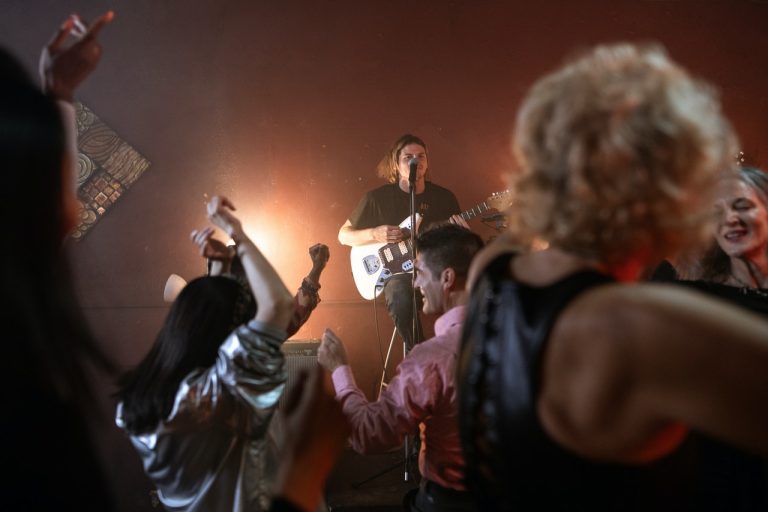
The definition of a Grassroots Music Pub (GMP) encompasses the same defining factors as a GMV (see above). Another important definition is for a Grassroots Music & Art Space (GMAS). A GMAS is also characterised by the same factors as a GMV. However, where a GMV and a GMAS differs from a GMP is its amenities and infrastructure. A GMV and a GMAS must have 1. A fixed or temporary stage to facilitate music; 2. A mixing desk, a PA system and other pieces of equipment to provide live music; 3. Employs at least two of the following people (Sound Engineer, Event Booker, Promoter, Cashier, Stage Manager or Security Personnel); 4. Provides a cover charge to live music performances and incorporates promotion for the event (Music Venues Trust, 2021).
A GMV can also be categorised by their size ranging from a small venue, a medium venue to a large venue, and these are determined by their capacity, activity, employment and financial return (Music Venues Trust, 2021).
For the purpose of this study, this research will class a Grassroots Music Event, a music event that takes place at either a GMV, GMAP or a GMP.
3.12 Popular Music Events
Popular music is defined as music that is “mass produced, mass marketed, and is generally treated as a commodity” (Kotarba & Vannini, 2009, p. 9). As this sort of music has a broader appeal due to it being mass-marketed, the events tend to be much more significant in their capacity, stage production and scale. To please a wider audience, they include a significant focus on aspects other than music (such as visual effects and stage production). This knowledge was inferred from research completed by Brown & Knox, where they said, “such music are actively seeking out dazzling visual aspects in what would still be expected to be a predominantly auditory experience” (Brown & Knox, 2017, p.242).
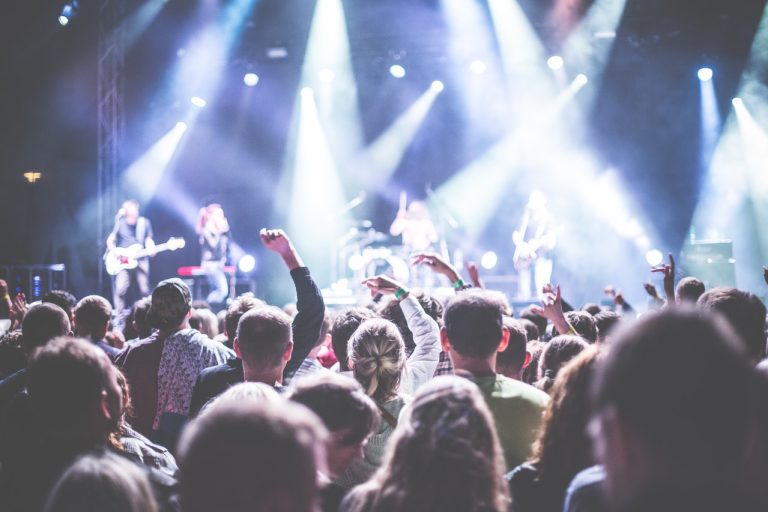
3.13 Music Festivals
“Traditional conceptions of popular music festivals describe collective events in which ritual, celebratory and experiential elements converge in order to provide audiences with entertainment and knowledge” (Paleo & Wijnberg, 2006, p.51). This definition perhaps refers to older festivals where music was not the event’s focus, but a community celebration of the harvest or other calendar events were. The most famous music festivals were The Woodstock Festival 1969, The Isle Of Wight Festival 1969 and The Glastonbury Fayre 1971. These festivals all embodied the 60s countercultural ethos, and several academics have linked the heritage of 1960s counterculture created at these famous festivals and their ongoing influence on all current outdoor rock and pop music festivals (Anderton, 2008). Due to the countercultural ethos being such a strong influence on modern-day music festivals, this research will explore the phenomenon of the countercultural and the carnivalesque. For instance, academics have linked the 1960s countercultural movement to Mikhail Bakhtin’s characterisation of the medieval carnival; the following articles were cited by Anderton (Blake, 1997; Clarke, 1982; Hetherington, 1992, 2000; Hewison, 1986; McKay, 2000; Stallybrass & White, 1986; Worthington, 2004; Jones, 2002; Anderton, 2009, 2020). During a medieval carnival, the peasantry was given license to indulge in excessive eating and drinking, sexual promiscuity, the wearing of grotesque masks and costumes, and irreverence toward those in authority. For many folks, the carnival acted as a liberation from the established order and removed hierarchy, privileges, norms and prohibitions until the close of the carnival, acting as a “societal safety valve” (Anderton, 2008, p.41). Bakhtin describes this feeling of a “second world” where “for a short time life came out of its usual, legalised and consecrated furrows and entered the sphere of utopian freedom” (Bakhtin, 1984, p.89).
Modern-day festivals are, however, highly organised and include compartmentalised zones whereby an attendee can tailor their own experience at an event; according to organisers from The Glastonbury festival, “No two people’s Festival experience will be the same” (Glastonbury, 2021). It could be said that some festivals have held onto their cultural heritage, whereas other festivals have more of an economic motive to their creation that facilitates the various performances of artists to consumers.
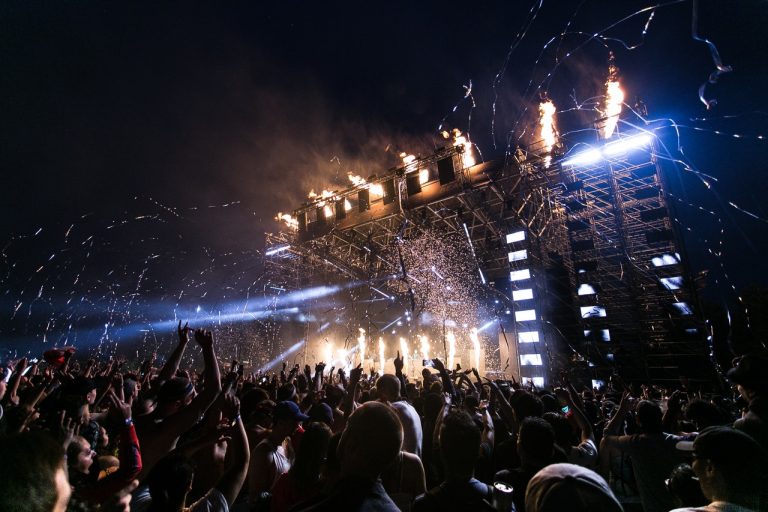
3.14 Music Event Infrastructure
The infrastructure of music events allows the development of musical artists. From a grassroots level, artists can learn their craft and gradually build up a following playing to larger capacities, to then getting recognised by A&R representatives who sign the artist up with their label and market their music, to where they ultimately get to play at popular music events and festivals when the artist has reached a massive following.
It is “crucial that there are live music venues of all sizes, from back rooms in pubs to medium-sized venues, through to large arenas such as Wembley. If one link in the chain is broken, it endangers the fragile infrastructure that supports our successful live music industry” (Cluley, 2009, p.19).
3.2 Motivations To Attend Music Events
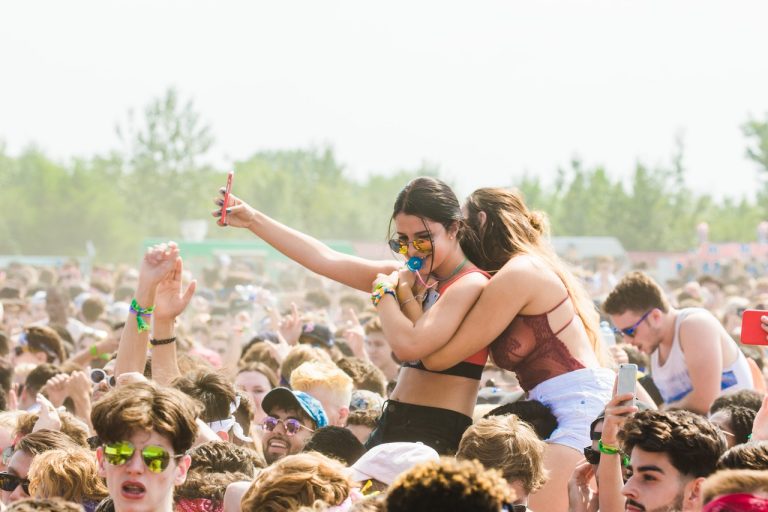
Motivation “is a state of need, a condition that exerts a ‘push’ on the individual towards certain types of action that are seen as likely to bring satisfaction” (Moutinho, 1987, p.16). The motivations may be utilitarian (a functional need) or hedonic (an experiential, emotional need) and can vary in certain degrees of strength depending on what the consumers goals are (Solomon et al., 2019). A ‘need’ is classified into biogenic needs (necessary for survival) and psychogenic needs (i.e. status, power, affiliation), of which the latter “reflects the priorities of a culture” (Solomon et al., 2019, p.169). Motivations can be a powerful precursor to consumer buyer decision making and satisfaction (Crompton & McKay, 1997; Vinnicombe & Sou, 2017). By identifying consumer motivations, an organisation can tailor their product/service and promotional content to align with its audience’s needs. By considering the consumer, the company will attract more business and ensure the continued survival and future growth if the consumer is satisfied with the product/service and likely to return (Kim, La Vetter, & Lee, 2006).
The majority of previous studies have focussed on finding the consumer motivations in music festivals. A music festival is a period of celebration within a community, where music is the primary attraction of celebration (Bowen & Daniels, 2005). However, music festivals are very differentiated due to their local origins and sometimes offer multiple attractions. For instance, in the literature, the Fiesta Festival (Crompton & McKay, 1997) is a parade with musical elements, and Celebrate Fairfax (Bowen & Daniels, 2005) is a county fair and a music festival. Another differentiation is the genre, The Umbria Jazz Festival (Formica & Uysal, 1996), The Tamworth Country Music Festival (Pegg & Patterson, 2010), Efes Pilsen Blues Festival (Özdemir Bayrak, 2011), The Purbeck Folk Festival (Pilcher & Eade, 2016), The Macao International Music Festival offering western classical music (Vinnicombe & Sou, 2017), the jazz festivals in South Africa (Kruger & Saayman, 2019), Electronic music festivals (Hodak et al., 2020) and Defqon.1 weekend festival providing rave music (Muhs et al., 2020). Festivals can also be quite inclusive and known for having a varied programme to attract a wider audience, with the literature including Storsjoyran Music Festival (Faulkner et al., 1999), a local festival in New Zealand (Nicholson & Pearce, 2001), The Glastonbury Festival and V Festival (Gelder & Robinson, 2009), EXIT Festival (Blešić et al., 2014) and MIDI Festival (Li & Wood, 2016). Other literature analyses music festivals linked to geographic locations, such as local Scottish music festivals (McMorland & Mactaggart, 2007), UK music festivals (Brown & Sharpley, 2019) and Canadian music festivals (Perron-Brault et al., 2020). Each festival has unique consumer motivations as each festival is unique due to the culture, geographic location, genre focus and the need to be strategically differentiated in the competitive festival industry.
Each study is summarised in Table 1, detailing the authors, event type, methodology, data collection method and the concluding consumer motives unique to that event. The articles were found using advanced search of ‘motivations’ and ‘music festival,’ ‘music event’ and ‘grassroots music venue.’ Overall, the underlying common consumer motives were: event-specific/music; family/known group socialisation; escape and relaxation; event novelty; excitement and enjoyment; cultural exploration; and socialisation (Vinnicombe & Sou, 2017). When designing this paper’s research, these overlying motivational factors will be considered and compared when analysing the different music event types.
3.3 Differing Motivations By Segmentation
Many festivals and events have a local origin, and “it is only later that some events take on the additional role of attracting visitors to an area, while still maintaining their original function of meeting resident needs” (Vinnicombe & Sou, 2017, p.275), and this is expected because as the business grows, so does its consumer reach. Some studies understood that motives were likely to differ regarding group and market, for instance, segmenting their consumer motivations by residents and non-residents (Formica & Uysal, 1996; Vinnicombe & Sou, 2017).
Table 1: Literature Comparison
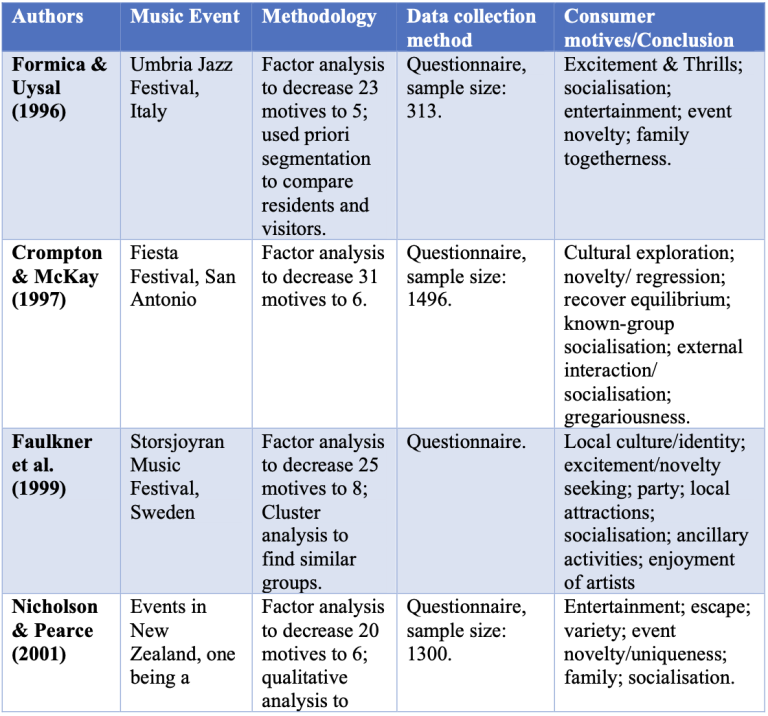
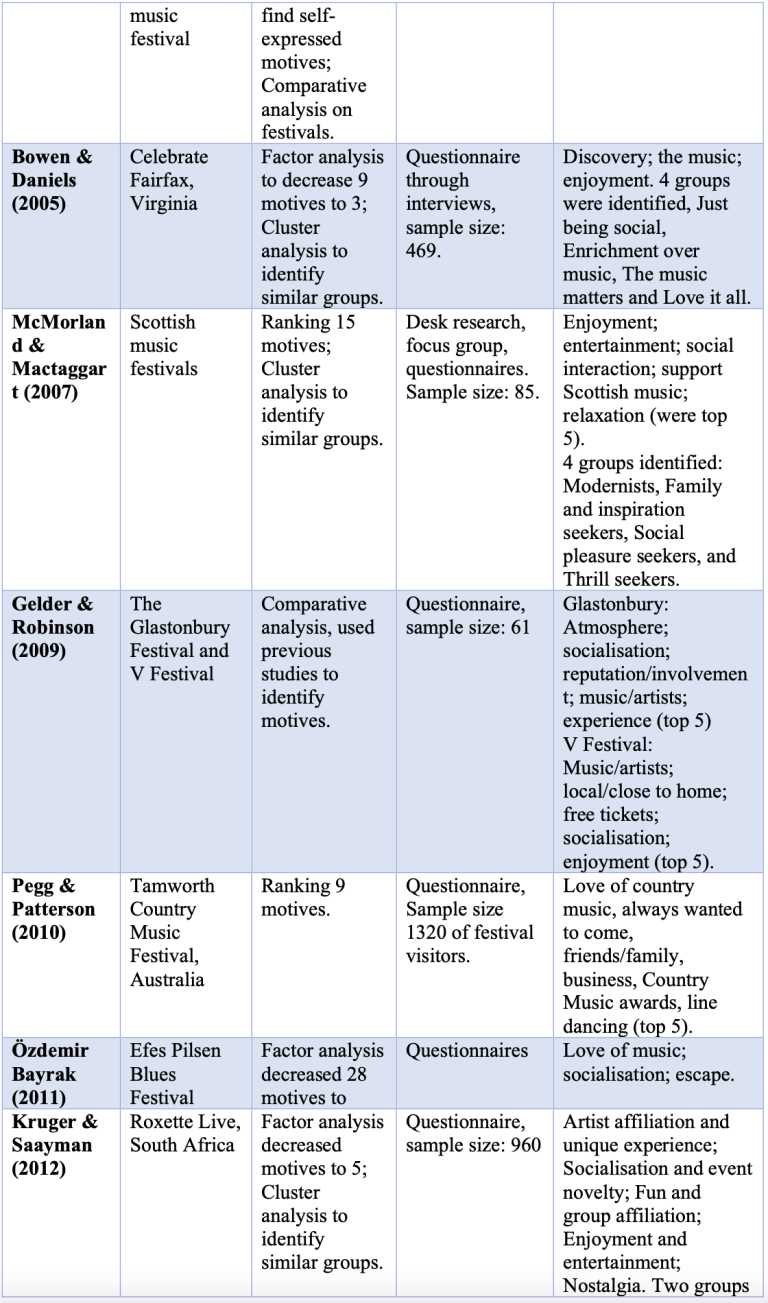
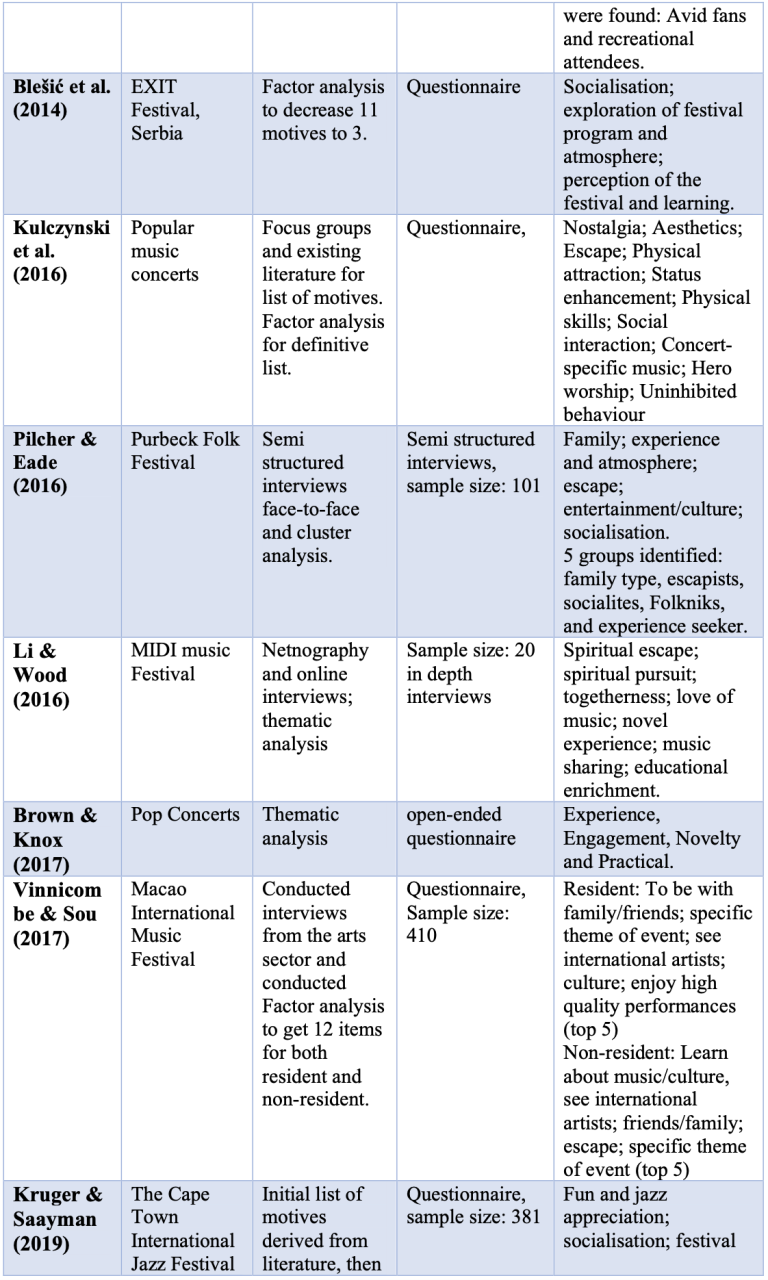
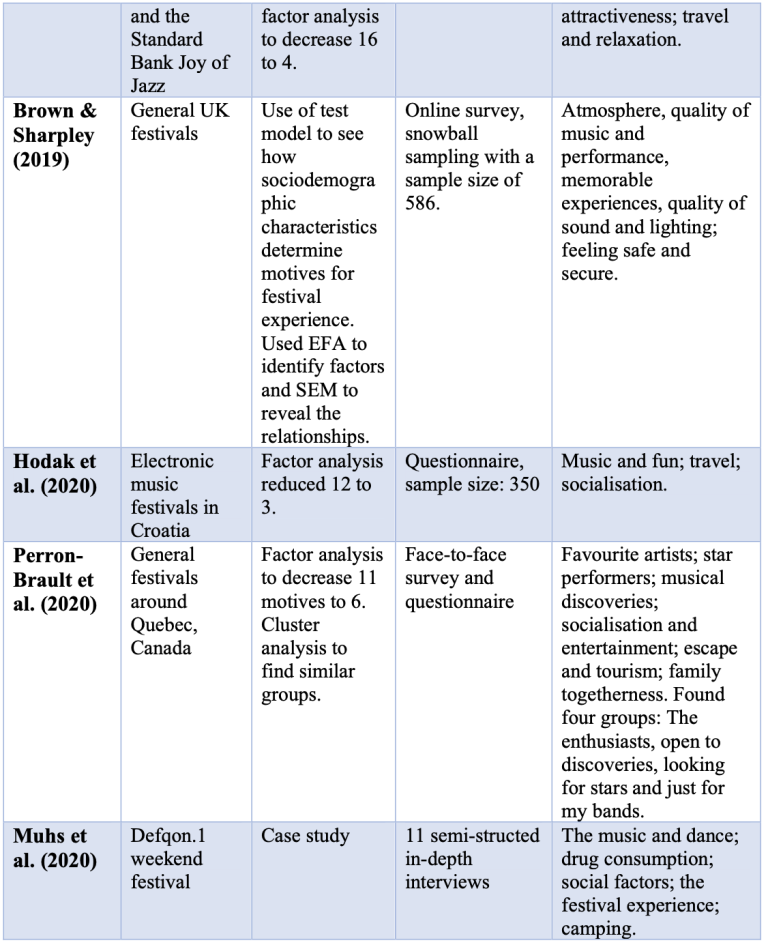
Other studies sought to discover homogenous groups by undertaking cluster analysis (Faulkner et al., 1999; Bowen & Daniels, 2005; McMorland & Mactaggart, 2007; Kruger & Saayman, 2012; Pilcher & Eade, 2016; Perron-Brault et al., 2020). The cluster analysis brought great insights into the specific groups who attended and provided valuable marketing information. There has also been some research into festival segmentation by looking into the socio- demographic of consumers (Brown & Sharpley, 2019; Kinnunen et al., 2019). This information also proves to be highly valuable in better understanding consumer groups for marketing purposes. Undertaking cluster analysis will be advantageous in this research to better understand the segmented groups attending various music event types, especially grassroots venues; however, this would be a significant undertaking.
3.4 Techniques Employed
The majority of previous research methods included making a list of possible consumer motivations, which were then reduced to a shorter list using factor analysis. The initial list of motivations was obtained from previous research or explored conducting focus groups, distributing questionnaires, undertaking interviews with industry experts or online interviews and using thematic analysis to find discussed commonalities. Factor analysis is “a set of multivariate statistical methods for data reduction, and for reaching a more parsimonious understanding of measured variables by determining the number and nature of common factors needed to account for the patterns of observed correlations” (Hayton et al., 2004, p.192). Exploratory factor analysis (EFA) is advantageous when there is little theoretical basis. As events are unique, and as there is little research in the area, it is apparent why previous studies adopted the method.
The majority of research used questionnaires containing the consumer motivational items found from thematic analysis. Qualitative data was quantified using seven scale Likert scales (some in-person studies used a five scale Likert scale so that the questionnaire would take less time and be less obtrusive to festival attendees) and then analysed statistically. Studies that wanted to carry out socio-demographic analysis, cluster analysis and segmentation tailored their questionnaires to include basic information about the individual. These included age, gender, domicile, education, socio-economic group, social class, annual income and music event specific questions such as preferred genre (Kinnunen et al., 2019), and thoughts around entertainment, service, engagement, added value, festival image and ethics (Brown & Sharpley, 2019). Some studies also adopted a qualitative approach to their questionnaires by containing open questions (Faulkner et al., 1999; Nicholson & Pearce, 2001; Gelder & Robinson, 2009), which significantly helped generate event specific motivations.
3.5 Music Festival Attendees and Popular Music Attendees
There were considerably fewer research papers regarding popular music events. More research is needed to understand consumer motivations in this area, especially since this is the most lucrative event type for performing artists. However, Table 2 compares the available literature for consumer motives behind attending a specific musical artist (The South African Roxette Tour), popular music events (in general) and music festivals (as discussed in 3.1).
Table 2: Popular Music Event and Music Festival Consumer Comparison
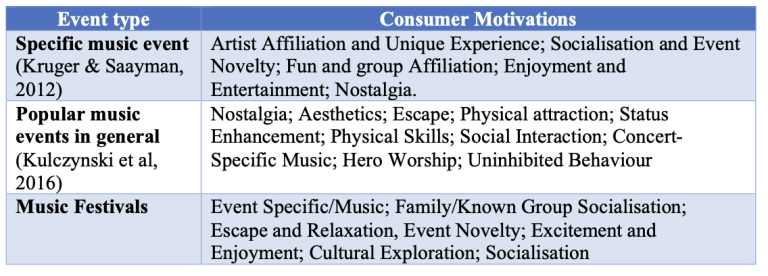
Kruger & Saayman, 2012 undertook cluster analysis and found two groups that help explain the differences in motives: ‘Avid Fans’ and ‘Recreational Attendees.’ The consumer motives such as nostalgia and having a stronger focus on specific music and artist (hero worship) was found to be a more significant focus with ‘Avid Fans,’ whereas ‘Recreational Attendees’ have more general entertainment motives. There is evidence that these two groups are identified in attending festivals. For example, “according to research from Ticketmaster, 45% of festivalgoers attend a festival for atmosphere, while 42% go for the line-up” (UKMusic, 2019). Perhaps ‘Recreational Attendees’ have stronger motivations for the atmosphere, whereas ‘Avid Fans’ have stronger motivations which are more specific when it comes to music and artists, and would therefore tend to wait for the line-up. Perhaps it could be said that as music festivals have become embedded into UK culture, they attract more ‘Recreational Attendees’ than ‘Avid Fans’ due to festivals having multiple areas of attraction. The levels of ‘Recreational Attendees’ possibly decrease as the music event type becomes more specific in terms of their artist/genre, where ‘Avid Fans’ possibly increase. Gaining a broad view of music event types will aid in discovering more about this phenomenon and will be explored in the latter stages of the data analysis, where hopefully, more comparisons can be made after generating data into grassroots venue consumers.
4. Research Design and Methodology
4.1 Research Design
This research acknowledges that motivations are personal and derived from humans, and that humans are different from physical phenomena because they create meanings. This research, therefore, takes on the interpretivist philosophy and is appropriate as motivations will differ from person to person. As there is no literature on consumer motivations behind attending grassroots venues, the research will be inductive and exploratory. This research has chosen a solely qualitative approach in data collection and analysis.
4.2 Methodology
4.21 Qualitative Data Collection
As found in the literature review, the preferred research method was gaining qualitative data (through focus groups, interviews, questionnaires and surveys). Due to the covid pandemic and lockdown restrictions, the live music events industry is on hold until deemed safe for the public. The lack of music events made it impossible to undertake face-to-face interviews and focus groups with event attendees. However, online methods, such as distributing online questionnaires to relevant audiences/social media group pages, were a viable option and was a method previously employed (Li & Wood, 2016). Nevertheless, this research chose to undertake online focus groups targeting specific places and demographics to discuss and explore possible motivations for attending grassroots venues and the lack of motives for attending grassroots venues. This qualitative method is appropriate as open discussion conveying participants thoughts and feelings is needed to explore the phenomenon. Prior to commencing the research, full consideration was made regarding research ethics (such as contacting participants using the universities’ secure email, not asking deeply personal questions or bringing up anything that could irritate participants), which minimised the harms and risks associated with my participants. All participants identities were anonymised, with names stripped. This privacy protected the participants, and the confidentiality allowed them to fully express themselves, knowing that their identities would not be disclosed (Onwuegbuzie et al., 2009). Only individuals who were above eighteen and had experienced a grassroots music venue was allowed to participate. During the initiation phase, all possible candidates were given a consent form outlining what they could expect from the session, as well as a detailed definition of grassroots events to clarify whether they had experienced one or not. Participants were politely excluded if they did not meet the criteria as the data would not be credible if a participant gave their thoughts on something that they had not experienced. The moderator asked the same open questions across the focus groups and allowed the conversation to flow so that the attendees could comfortably express themselves. The discussions were video recorded (only after permission to do so by all attendees) and later made into a transcript, which was viewed solely by the moderator to protect all participants identities. The focus groups duration lasted until the group felt they had fully explored their motivations and preventatives to attend a grassroots event. The focus group durations were: Brighton Focus Group – 00:49:24; Ipswich Focus Group – 00:28:44; London Focus Group – 00:42:25.
This research method had the possibility of producing inaccurate data, by participants desires’ to please the moderator/research assistant or to change their answer to be socially desirable (Saunders et al., 2019). However, the benefits of focus groups far outweighed the disadvantages and videoing the focus group sessions also aided in mitigating any of these effects when reflecting upon the videos. See ‘Appendices’ to view the final transcripts.

4.22 Qualitative Data Analysis
This research employed thematic analysis on the focus group transcripts.
“Thematic analysis is a qualitative research method that can be widely used across a range of epistemologies and research questions. It is a method for identifying, analysing, organising, describing, and reporting themes found within a data set” (Nowell et al., 2017, p.2).
The analysis took place on a computer-aided qualitative data analysis software (NVivo). The thematic analysis process had six steps: 1. Familiarising the data; 2. Generating initial codes; 3. Searching for themes; 4. Reviewing themes; 5. Defining and naming themes; 6. Producing the report (Nowell et al., 2017). As this is exploratory research, the research undertook an inductive approach and developed codes using descriptive coding and In Vivo coding, where themes emerged in an exploratory manner.
4.3 Sampling
Thematic analysis is beneficial, as it allows the moderator to check through the transcripts and determine the moderator’s effect on the data and determine if any bias affected what the participants said; it allows the researcher to see their reflexivity (Dodgson, 2019). For readers to understand the trustworthiness of the data, this research identifies the researcher (Moderator in the transcripts) to be a white man in his early twenties, who is originally from the countryside and a musician.
When selecting participants in the focus groups, the researcher reached out to acquaintances of family members, staff and friends who attended live music events regularly (or used to attend regularly). Participants were chosen and grouped by their age range in their geographical region to see if different ‘clusters’ would yield different results. The participants were grouped into three focus groups according to their town/city and age range: Brighton Focus Group – Demographics Aged 40-60, Ipswich Focus Group – Demographics Aged 40-60 and London Focus Group – Demographics Aged 20-30. The purposive sampling was beneficial in finding the right participants and the acquaintances created a talkative and comfortable atmosphere where they could express themselves fully.
5. Primary Research Findings
5.1 Overview of Results
The results identified ten motivational themes to attending and seven themes linked to preventing somebody from attending a grassroots event. The findings indicated that Uniqueness, Intimacy and Being part of a Community were the top three motivational themes to attend, and that the top three preventative themes to attend were Bad Reputation, Fear of the Unknown/Intimacy and Expensive. Interestingly, one of the highest motivations to attend (Intimacy) may also be a preventative measure if someone has not experienced that particular environment before (Fear of the Unknown/Intimacy). The findings indicated that each group had their own preferences and unique views, though some themes were not discussed in every focus group, and this is represented with a zero in the table.
Table 3: Motivations to Attend – Results
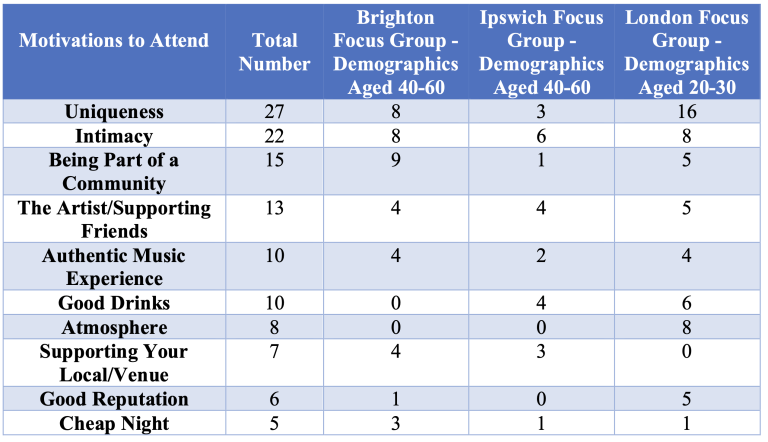
Table 4: Preventions to Attend – Results
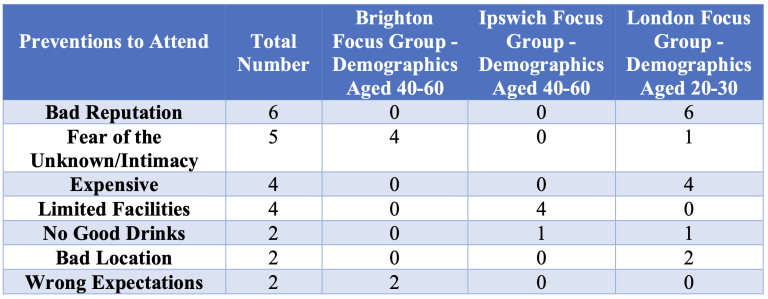
5.2 Motivations to Attend
This research will now explore each motivational theme in detail:
Uniqueness
The focus groups revealed that this was one of the most important themes. A key code from this theme was the idea of spontaneity, surprise, curiosity and that of the unexpected.
Speaker 3, Brighton
“One of my motivations…was the character that runs the night. A guy called Andy Hank dogs. His band was called The Hank Dogs. And so, and he was such an entertaining character, it didn’t really matter who was playing there…I had many friends that came along with us who they went for the sheer entertainment. I mean, it was like a variety show. But there was a guy one night who got up on stage with no instruments and said he made indigenous noise vibrations and he just did this with his mouth. He made a sound like a didgeridoo and managed to do a full set and captivated the audience. I mean people were all jaw dropped ’cause the guy was so good at it! But it was about the sort of the night you know… This sort of curiosity as well each week to see, you know, what was going to happen the following week.”
This quote perhaps sums up that his motivation was to see a creative and charismatic event manager who kept captivating audiences through unique entertainment each week. It is the reason why events are highly differentiated at the smaller event level. Much like there is a motivation to witness a musician be creative and improvise on the spot, there could be a motivation to see the creativity behind an event manager, who actively creates, adapts and adds to the event as it unfolds. Though, the overall codes here was uniqueness and curiosity.
This theme is also reinforced:
Speaker 4, London
“Again, it’s that thing with grassroots venues, it’s the story! Yeah is it close? Is it gonna be a good vibe? Is there mates going? Are you gonna have a ******* epic night?”
The audience has an input and contributes to the event’s success and the overall enjoyment of all involved. This theme is unique, as larger music event types are much more choreographed, scheduled and strictly organised, where the audience has less of a participating role.
Speaker 3, Brighton
“I used to have a fire, and friends just used to come, sit and play. I think it was very…the word authentic comes to mind. So what you were saying with the bigger venue…you’re connected, but perhaps there’s more authenticity in that intimate exchange you have with people when they’re right in front of you. Whereas at a bigger venue, nowadays lots of things are pre-recorded and (I wrote a little bit about this) about managed spontaneity. I like the spontaneity of a gig where somebody can make a mistake and fluff it, or just break out to something else, somethings not working for them, so they start off on something new. Those things for me, are really the magical moments, which often you can’t get a bigger gig. The fireside is the ideal place as you have got that close proximity to each other, and to the source or whatever sort of music entertainment it is. So I think authenticity is something about the Grassroots venue which is most important. You get the real experience, it’s up close, and quite intimate.”
This quote is very much linked to ‘Intimacy’ and ‘Authentic Music Experience’ themes. However, the idea of spontaneity perhaps enhances these other themes.
The idea of ‘having a theme around a night’ was particularly important for the London Focus Group, and how a theme can help differentiate an event from others by having a unique selling point. For instance: “If they’re doing a foam night! Or a ball pit night” (Speaker 3, London).
A unique selling proposition (USP) can help motivate consumers to attend. Other USPs included a ‘metal night’ and a ‘drag night.’ It could also be said that a particular artist is a USP to the event if they are known (John Mayer, U2, Robert Plant, GreenDay, Area 11, and Roachford were all expressed). Any of the other nine motivational themes could also be a unique USP to a grassroots music event.
The uniqueness theme also gave insight into how a grassroots event can yield a different and unique experience than other music event types. Furthermore, this code is also linked to the themes of ‘Intimacy’ and ‘Authentic Music Experience.’
Speaker 4, Ipswich
“I’d rather a more intimate…grassroots venue to get that better live experience than a stadium.”
Speaker 1, Ipswich
“It is just a little bit of a different place to go. Invariably, you know it’s sometimes not a pub, could it be a pub? But it’s just got some character, hasn’t it?”
These quotes again link to the codes of the unexpected, story, character and uniqueness.
Intimacy
The Intimacy theme links to Uniqueness, as big popular music concerts and music festivals are too big for intimacy to occur regularly. Moreover, it is this attribute of grassroots music events that make it a preferable environment.
Speaker 1, London
“You can have a small group of high quality, engaged people, its a much more energetic and biting environment.”
This quote links to the Atmosphere theme where intimacy contributes significantly to the environment.
Speaker 2, London
“Yeah. When you’re in a small venue, everyone has that kind of live or die…kind of mentality, of like I’m here and I just want to absolutely give my soul to the whole ******* place.”
A smaller and intimate environment is better for music fans.
Speaker 2, London
“You’re much closer to the artist, but also much closer to the fans who are like super into it.”
Speaker 3, London
“It’s almost like a concentration of the front row of a major festival or major gig in one place.”
Speaker 3, Ipswich
“And all of the artists walked past all the audience to get onto the stage. So you’re very, talk about up and close and personal. It is up and close and personal. Now at the end of their performance, you just can go and stand and talk to them, so that it’s really that close and personal.”
These quotes about Intimacy support the Uniqueness theme, as they are experiences unique to smaller events. An interesting concept of house concerts was explored in the Brighton focus group. A band would perform in someone’s conservatory or basement and temporarily transform their home into a grassroots music and arts space, which provided a unique experience, especially an even more intimate setting.
Speaker 2, Brighton
“There’s no distance between you and the performer, it’s very intimate and a lot of them perform acoustically, so they don’t have any mikes or anything like that, and some do. But a lot is just, you know, voice and guitar. It’s great!”
Other temporary music spaces were also discussed, such as a ‘fire circle,’ ‘community centres transformed into a music venue’ and of course ‘pubs.’
Being Part of a Community
This theme was a motivation where the music was less critical, and the people who attended these events were more of an attraction.
Speaker 3, Brighton
“It was about going to hang out with sort of like-minded people really… it didn’t really matter what band was playing, as long as there was a band playing and there would be those people, the crowds that would hang out there. If there wasn’t a band on, there’d be, you know there’d be a DJ or a jukebox playing, so you’d still get the music element.”
This ‘communitarian’ aspect involved similar codes such as ‘socialising,’ ‘being part of something new,’ and ‘going for the community.’ It could also be said that the theme ‘Supporting Your Local/Venue’ is also linked to communitarianism, where a music event is a place where the community gathers to support one another.
This theme also links to ‘Atmosphere.’
Speaker 4, London
“I respect the atmosphere, but for me, It’s the people around you that create that atmosphere” (Speaker 4, London).
A notion was put forth that it was the people within the venues that made them exciting and unique places to be.
Speaker 1, Brighton
“It wasn’t a sort of glamorous music scene, but it was the crowd that was there and a feeling of it being an emerging fashion, lifestyle, scene that was attractive that I wanted to be part of.”
This idea of being part of a community that together experiences something exciting, new and unique is echoed in the London Focus Group.
Speaker 4, London
“Yeah, is there something unique about the place? Do you have history there? Or do you want to make history there?”
The Artist/Supporting Friends
Participants expressed that a particular reason for their attendance was because they researched the artist performing.
Speaker 3, London
“Yeah, for example, earlier this week there was a Homeblood concert at The Boileroom in Guildford. You had to have a £15 entry fee, and I think £15 pounds, £12 pounds…and you had to have a lateral flow test, which is a lot you know in terms of inconvenience. So anyone who turns up at that gig. Watching, bouncing and jumping along to Homeblood is very, as equally committed to the next person. You’re not going to that gig passively or just because you’ve wandered by. You’re going there because you have intention to go and see that band on that night.”
Speaker 3, Ipswich
“I would say the same as [Speaker 1], that we would do some sort of research first to say that, we’re going to see such and such a band at this venue.”
Participants also expressed that they went because they knew the artist/musicians performing or knew who worked at the venue.
Speaker 3, London
“I will only go there because they somehow managed to scrape together a decent reputation whereby they have some good local bands, including [speaker 5] for example, when you played with The Night Society I was down there in a heartbeat. And I had a mate from Andertons who was doing a three piece there back in the day. I was there in a hurry. I wouldn’t ever, in a million years choose to go there for a night out.”
These motives have a clear intention for why people went to these events.
Authentic Music Experience
It was expressed that grassroots events provide a better and more authentic music experience than other event types due to the intimacy, size and nature of grassroots events. There were several reasons why, such as:
Speaker 2, London
“Well, you can lose yourself more.”
Speaker 3, London
“Yeah, it’s like you feel more significant, I think as someone who’s watching.”
Speaker 3, Brighton
“I think authenticity is something about the Grassroots venue which is most important. You get the real experience, it’s up close, and quite intimate.”
To give more weight to this idea is that many famous artists go back to play at Grassroots venues even though they probably make less money and sell fewer tickets as the grassroots capacities are more miniature than large venues they typically perform.
Speaker 4, London
“It’s kind of like a step back in time, because there’s no way that you get a John Mayer usually in a venue with a 100 people, it’s incredibly unique.”
These also add to the uniqueness theme. As grassroots venues hold a smaller capacity, the tickets are much rarer and more sought.
Speaker 3, Brighton
“There seems to be thing for bigger artists to go back and play at more intimate, smaller venues. U2 did a thing a few years ago now in The Apollo. And it was a relatively small venue compared to their 80,000 seat stadium they play in. And the buzz around the fan community about that gig…the tickets were like gold dust for people to get there and be part of that. They’ve played at other small venues, like in New York, where they wouldn’t normally get the chance to do that sort of thing. It was underground, quite sort of secretive, and these things emerge a couple of days beforehand that they’re playing at this sort of venue. It usually gets sold out, and unless you’re in the know, you miss out.”
Good Drinks
This theme resonated highly for the London and Ipswich groups.
Speaker 4, London
“If they have Guinness, yes I’ll go. If they don’t have Guinness. Hmm yeah, hold that one.”
Speaker 2, London
“I’m going to spend loads on the drinks, that’s why I’m there, you know?”
Speaker 3, Ipswich
“And certainly, they certainly need drink there. I’m not so much worried about food. But you know, they sort of go hand in hand, drinking and watching music.”
Speaker 2, Ipswich
“It’s good if they got some decent beers on as well.”
Having a good selection of drinks at an evening event is undoubtedly essential, especially when music is involved. Some participants expressed that it would prevent them from attending if the venue did not have drinks or even a specific brand of drink (Guinness).
Atmosphere
The London Focus group valued the atmosphere to be one of the ‘top tier aspects’ they sought.
Speaker 2, London
“Like there’s a full band playing whatever. You’re like, I’ll go there again, because I know they’ve got a good atmosphere.”
Again, highlighting the differences from major events to a grassroots one, and has perhaps highlighted some issues surrounding popular events:
Speaker 3, London
“Like when I go into a major venue like an arena, there is an element and a feeling like cattle. I don’t feel like cattle when I go to a grassroots venue.”
Speaker 3, London
“I think to sum it up in one sentence. Every single time I’ve been to a bigger venue, like a major venue, I felt like an inconvenience. When I go to most grassroots, most, but not all of them, but most of them I feel much more welcomed.”
As discussed, the atmosphere goes hand in hand with the community aspects, as it is often the community at the event that creates an ideal atmosphere.
Supporting Your Local/Venue
Participants expressed motives for wanting to support their local and supporting a particular venue or grassroots venues in general.
Speaker 2, Brighton
“It’s a case of not just supporting musicians, it’s a case of supporting near you.”
Speaker 1, Brighton
“It only lasted a year or so, but it was kind of quite magical while it was there, and I think a lot of us went just because we wanted the venue to continue doing what it was doing. I can’t remember any of the artists I saw.”
Speaker 3, Ipswich
“It’s also helping the smaller venues survive as well because they’re the ones who need the support.”
Speaker 2, Brighton
“And I was going to say about supporting the actual promoters so as well as supporting the venue and the artist supporting the promoters. And you know, these sort of grassroots venues that people put and their shows on there, do it because they love music. And very often they will lose money and it’s about really supporting them as well.”
An excellent point was made that the particularly small grassroots venues do not tend to make much money but put on events for the love of music, which is included in the Grassroots venue definition (see literature review).
Motives were also expressed to support up and coming musicians:
Speaker 2, Brighton
“Where the support I’m really interested in, and that’s what’s made me go rather than the attraction of the main act.”
Some participants went solely to support their friends:
Speaker 4, Ipswich
“For other people, you might be going with somebody to support them because there’s somebody there, we travelled to London I think to KoKo’s in Camden. I just support one of our friends who wanted to see Trombone Shorty so three of us rocked up because one person wanted to go. I never heard of him, so that might be a factor for other people.”
Speaker 3, London
“All I’m going for is the bands that I know I’ve got friends in.”
Interestingly, a member from the London focus group expressed that they would not care if a grassroots venue closed down, showing that everyone does not share this motivation.
Speaker 3, London
“I’ve never once gone to The Boileroom or any grassroots venue and said, I’m just glad to be here because I don’t want this place to close down. I am a full on advocate for capitalism. The supply and demand. They **** themselves up through whatever means, even if it’s unfair, that’s the way to go.”
This comment is slightly detrimental to the smaller scaled grassroots venues that put on events, not for the money but the love of music and not to profit. Though another question does arise, will small grassroots venues survive in the future if they do not bring in any money? Hopefully, this paper can help organisers be more business- minded in their marketing and yet maintain the essence of their creative and artistic activities.
Good Reputation
This theme was important for the London focus group but not for the other groups.
Speaker 3, London
“I think number one above everything else is the reputation of a venue. If it, if it is known and the people around me and the count of people there, is telling me that they’ve had countless great experiences after great experiences after great gig after great gig after great night out at that venue. I’m much more inclined to go in yeah, and if there’s a night or a theme or something like that incentivises me, then even better.”
Reputation was a big theme in the London focus group, and if consumers hear of other consumers having a great experience via word of mouth, they are much more likely to attend the next event.
Speaker 1, London
“If it had a sort of a reputation for being quite an enjoyable night, having a good vibe, like a good crowd of people. That kind of thing. That would be quite a strong incentive, even if I didn’t know who was playing. You know, if there’s like a good crowd, a good scene, it’s got a reputation there like being a fun night if they’re having fun people there, then yeah.”
In this quote, the themes of Community and Atmosphere also add to the event/venue’s reputation.
Cheap Night
This last motivational theme came up in all three focus groups and indicates that it is a factor in the consumer’s decision-making process of whether to attend.
Speaker 1, London
“Yeah, I mean the festival costs £250, whereas a grassroots venue costs £5.”
Speaker 1, Ipswich
“It’s not such an expensive night out.”
Speaker 1, Brighton
“It only cost a couple of quid.”
Does this theme exert a push on an individual to attend, or is it merely a preference? The following section will see that the pricing of these events can certainly be a deterrent.
5.3 Preventatives to Attend
This research will now explore each preventative theme in detail:
Bad Reputation
Reputation was a big motivational theme for the London Focus Group; however, they quickly realised that “reputation can be a prevention” (Speaker 4, London).
The participants reminisced of stories from their student days about specific venues having a terrible reputation and how it was preventative to their attendance to such places. Whilst these venues may get a bad reputation from their own actions, they also get a bad reputation from audiences’ actions, e.g. ‘the spiking of drinks’ (Speaker 1, London).
Interestingly, reputation is a more significant factor for some than others and can be a strong deterrent if another person in the group only goes to places with a good reputation.
Speaker 4, London
“Yeah, I’m big on reputation, however, I’m still gonna go. But if it’s just me and the missus, yeah, **** me am I going to avoid it.”
To limit the effect of this preventative theme, event organisers must have quality measures to ensure that the consumers’ experience is always positive after attending an event; this should lead to the event having a good reputation by consistently providing a great experience. Market research could help find out if a specific venue/event has a bad reputation.
Fear of the Unknown/Intimacy
The ‘Fear of the Unknown’ was an In vivo code found in the transcripts and describes the theme perfectly. It is typical from a psychological perspective that people are generally afraid of things they have not experienced before. Intimacy, the unique selling point of Grassroots venues, was also found to be a barrier.
Speaker 3, Brighton
“The fear of the unknown! That was on my mind, if people have never been to a particular venue before. The idea of Grassroots venues for some perhaps… well what does that even mean? And even fear of intimacy as well. If you are up close, I guess it’s the same as being on the front row of a comedy act and being brought onto the show or humiliated as part of that. I guess it’s a part of that. I’ve been to shows, I have a friend who lives in New York, and I tend to want to go out. So I go to venues such as Arlene’s Grocery, and in the lower East side, so some really very small venues. You walk in there and everybody looks round, and it might be in the middle of a solo acoustic performance, and all of a sudden the spotlights on you! That happened to me the first time I went there and there was this sense of, should I go there again? I’m not quite sure on that place. I forced myself to go, and it turned out to be the best part of that holiday in my life! It was fantastic! Being in a small venue with such variety of artists. But yeah fear, I guess might be a barrier, a fear of the unknown and a fear of the intimacy.”
Speaker 2, Brighton
“I think a lot of people are scared to try something new. So unless the artist is really well known, or has been played a lot on the radio, they won’t take a chance on them, so they won’t go to the Grassroots venues.”
Is there anything organisers can do to prepare or inform consumers of the sort of experience they might expect so that the ‘unknown’ barrier is broken down?
Expensive
This theme was only mentioned in the London Focus Group and could be because money is more of an issue for students than it is for older demographics who have already progressed in their careers and have an income.
Speaker 3, London
“How many times have we not gone to (a particular venue in Guildford) due to the pricing?”
Speaker 2, London
“I’m always a bit peeved when I have to pay an entry fee.”
If a venue is holding an event aimed at younger demographics, they need to have prices that reflect the audience they are trying to attract.
Limited Facilities
This theme only appeared in the Ipswich focus group, where participants who generally struggle to stand for long periods expressed that venues should accommodate the needs of these people more by providing seating.
Speaker 1, Ipswich
“I think there is more that they could do to encapsulate a wider audience by having some seating of some description.”
Speaker 4, Ipswich
“I don’t stand anymore. Somebody 30 years younger might like to stand all the while and won’t be bothered.”
The participants also expressed that they would make a special effort in standing if it were someone they particularly wanted to see, e.g. ‘Roachford‘ (Speaker 4, Ipswich). Thus suggesting that these people would perhaps go to more grassroots music events if there were seating. If Grassroots event managers consider this, they may draw in more consumers.
No Good Drinks
This preventative theme is interesting as if the motivational theme of “Good Drinks” is not provided, the participants would not go to the event.
Speaker 4, London
“You know, do they have good pints? If not, I don’t (go).”
Speaker 3, Ipswich
“It would certainly put me off going if there wasn’t any sort of drink or that sort of possibilities there.”
Events must ensure a good selection of drinks, and if consumers are aware of this (through marketing material), they may be motivated to attend.
Bad Location
Location was important for the London Focus Group.
Speaker 3, London
“The other big thing about the importance of whether I do or don’t attend a grassroots venue, The (undisclosed venue) represented perfectly again in the context of Guilford, is location. I’m not gonna trek my **** half an hour, 45 minutes away from spoons, which is the natural progression? Let’s be honest. Basically, Grassroots events need to happen in close proximity to Wetherspoons.”
If an event is challenging to get to (poor transport links), in a part of a city which has a bad reputation or is a long distance to the city centre where many people may go afterwards to continue their night, it can be a substantial preventative to attendance. Many Grassroots events that occur in a fixed physical location can not do much to help this situation other than providing travel information to reassure participants or choosing a suitable location in the first place when setting up the venue.
Wrong Expectations
The last preventive theme was Wrong Expectations. This theme suggested that some people would not go to a grassroots music event because they had different expectations of what the event would entail. This passage in the Brighton Focus Group was insightful:
Speaker 2, Brighton
“I think a lot of people are scared to try something new. So unless the artist is really well known, or has been played a lot on the radio, they won’t take a chance on them, so they won’t go to the Grassroots venues.”
Speaker 1, Brighton
“Then if they do go and see them, they expect it to sound like the record on the radio. I remember seeing Neil young, and loads of people in the audience felt pissed off as he didn’t play his big hits. He played whatever he wanted to play for two hours. So again, that thing where people aren’t willing to take a chance. I think if people go to the O2 Arena they’re expecting to see slick costume changes, massive professional sound systems. There’s no randomness, nothing left to chance, and everything’s well-choreographed and probably made to sound like it does on the recorded version. A bit boring I think.”
Major events’ high stage production is so widely different from a grassroots performance where music is the primary offering, rather than audio/visual at a larger event with choreographed dance routines, visual stage effects, lighting rigs and pyrotechnics. Perhaps grassroots venues could look into investing more stage equipment to enhance its visual aspect and attract more of these people, but this could undermine the authentic music experience theme that is so strongly desired, as well as being expensive to implement, which will be out of reach for many of the smaller- scaled grassroots events.
6. Discussion of Research Findings
When looking at the data, it is important not to analyse this quantitatively, as in this research the value of what a particular group said is significant, even if other groups did not mention the same theme. It is also essential to recognise that the data will not be entirely representative in a group, and that individuals’ preferences will be different from the groups’ collective preferences. However, through the numbers, we can see how many times a code came up for a particular theme and see that some themes were more important for some groups than others. This research will now understand the nature of the focus group sessions and explore each theme in-depth.
6.1 Discussion of Focus Groups
Table 5: Brighton Focus Group – Results
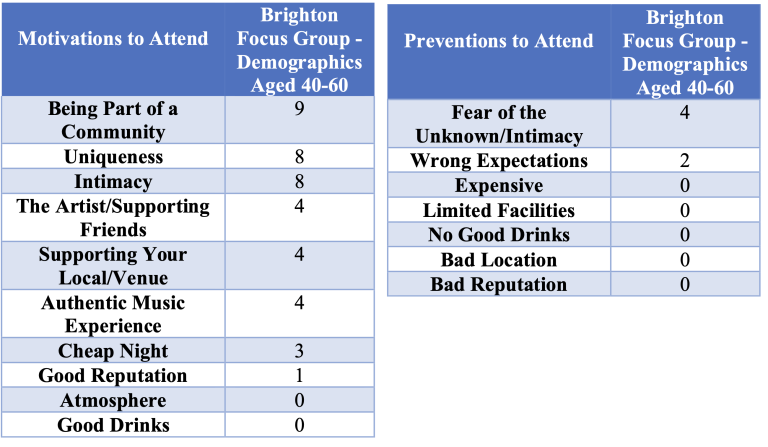
The results of this focus group indicated that Being Part of a Community was the highest motivational factor, followed closely by Uniqueness and Intimacy.
This focus group was held with working professionals during a break from their work, and this could attribute to why ‘Good Drinks’ was undiscussed as the colleagues may not have wanted to disclose this information whilst at work.
Table 6: Ipswich Focus Group – Results
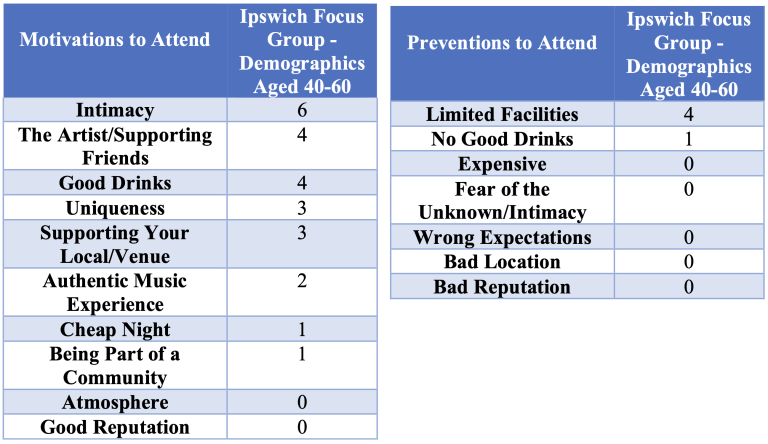
This research focus group was implemented after work with a group of friends, and their primary motivations were Intimacy, The Artist/Supporting Friends and Good Drinks. Limited facilities, especially ‘lack of seating’, was a considerable insight into the preventions from attending an event for this demographic. The session was the shortest duration out of the focus groups (00:28:44), which is perhaps why the themes’ data came up shorter than the other groups and why Reputation or Atmosphere was undiscussed.
Table 7: London Focus Group – Results
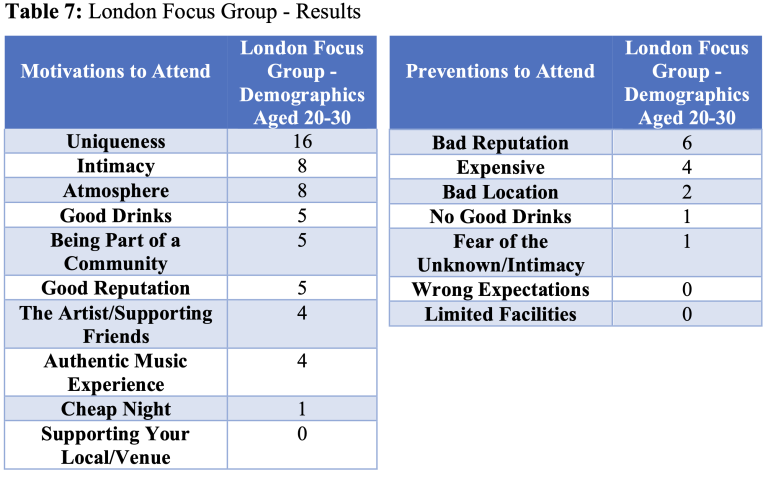
This research was held in the late evening in a relaxed environment and found that the most significant motives were Uniqueness, Intimacy and Atmosphere. Being Part of a Community was a big focus and was attributed to the Atmosphere factor. As recent students, Good Drinks was a significant factor, and Bad Reputation, Expensive and Bad Location being high preventions to attend. Interestingly, this group expressed that they did not care about supporting the venue. Another interesting finding was that Atmosphere was one of the most critical aspects; however, this was undiscussed in the other groups.
6.2 Music Event Motivations Comparison
This research has added to the existing literature on motivations for attending music events by researching another music event type (grassroots). The data surrounding music festivals are much more credible due to the sheer amount of research completed in this field, and more research is needed in popular music events and grassroots events to give more accurate data. Nevertheless, some comparisons are visible. In all of the research, there were motives in attending concerning things other than music, the primary offering (see table 8).
Table 8: Music Event Type Motivational Comparison
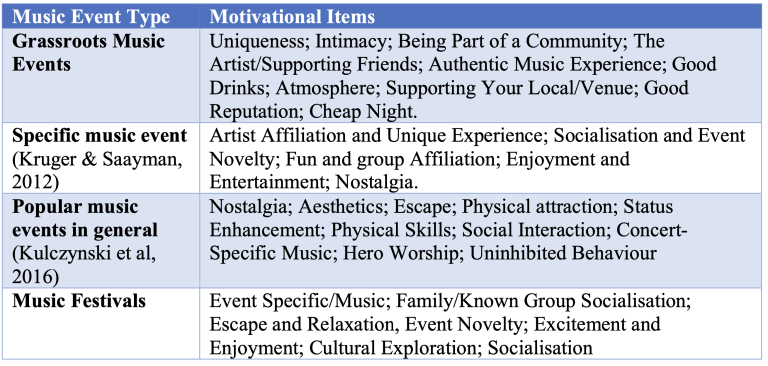
The event size plays a significant role and adds motivational strengths to each event type. For instance, the small size of grassroots events adds Uniqueness, Intimacy, an Authentic Music Experience and a concentrated Atmosphere. In contrast, the larger events such as a festival have the space to offer more incentives other than the music by compartmentalising a field and planning spaces for specific experiences such as Escape and Relaxation, Socialisation, Cultural Exploration and a heightened Excitement by creating highly visual and high production value stages. It could be said that as festivals offer more incentives other than music, that they attract more ‘recreational attendees’ than ‘avid fans,’ though more research should be conducted to clarify this.
7. Conclusion
Overall, this research has better understood consumers’ motivations and preventions to attending a grassroots event. Through undertaking focus groups with participants based in three cities around the UK (Brighton, Ipswich and London), this research has concluded that there were ten motivations to why someone would attend a grassroots venue, these were: Uniqueness; Intimacy; Being Part of a Community; The Artist/Supporting Friends; Authentic Music Experience; Good Drinks; Atmosphere; Supporting Your Local/Venue; Good Reputation; Cheap Night. These motivations may help event organisers bring in more business by considering these motivational themes in their event planning and fulfilling consumer preferences. This research found out in the literature review and acknowledges that many of the small-scale Grassroots events are not for profit and merely run events for the sheer passion of music. However, the motivational themes found can ultimately lead to a better experience for all parties involved, be it the community, the audience, musicians or event organisers, where a unique and intimate setting within a community can celebrate up and coming music authentically.
This research also concluded that seven preventative themes were surrounding attending a Grassroots event: Bad Reputation; Fear of the Unknown/Intimacy; Expensive; Limited Facilities; No Good Drinks; Bad Location; Wrong Expectations. Event organisers can limit as many of these preventative themes as possible by tending to each issue separately. Possible measures were suggested in the discussion of findings section, suggesting that: to combat Bad Reputation, events managers could conduct market research to understand their reputation and employ quality assurance practices to their events and gain reputation; to combat Fear of the Unknown/Intimacy, find ways of informing and preparing audiences the type of experience they may encounter (possibly highlighting the positive themes); to combat Expensive, have prices that reflect their target audience; to combat Limited Facilities, event organisers could seek to invest in their facilities, such as providing seating to attract members of the public who can not stand for long periods; to combat No Good Drinks, ensure that there is an excellent selection of drinks; to combat Bad Location, choose another place to run the events or inform/suggest ways to get to the events; to combat Wrong Expectations, event managers could inform consumers more about the type of experience they can expect, or weigh up their options in investing in more stage equipment or visual effects, though, this could have a negative effect on the motivational theme Authentic Music Experience.
Overall, this research has contributed and hopefully filled a gap in the music event literature by providing insights into consumer motives behind attending Grassroots venues, of which it was discovered that there was a lack of research in this particular area. The motivational comparison across music event types found that each event types primary consumer motivations were because of attributes brought out by the event size.
8. Recommendations
This research has identified a gap in the literature and has attempted to fill that gap. It is recommended that more research is conducted in this area to validate further the data and conclusions drawn. The literature also identified that one could better understand consumers by seeing if they fit in a particular group. It is recommended that future research conducts a questionnaire or survey on Grassroots event attendees asking socio-demographic questions, and at the same time possibly including a Likert scale with the motives found in this research. Cluster analysis could be implemented, and this could generate insights to see if any consumer preferences fit a particular group, e.g. consumers at a certain age, in a specific geolocation, a level of education or salary. This research would provide even greater insights into consumer motives behind attending music events.
More research could also be conducted in the popular music event type category as research is sparse in this area. More research could also be conducted exploring consumer preventions to attending; much of previous research focussed heavily on the motivations.
Event managers who run music events should take the conclusions of this paper and see if there is anything they can do to better their events by fulfilling the motivations found and solving all of the preventative factors that could be associated with their event. This paper looked at grassroots events as a whole, and the data here may not be helpful for every event. Events are highly unique, and it is recommended that event managers conduct their own research into their own specific unique events to get the most accurate and valuable data to fulfil their needs. It is also recommended that event managers follow the PMBOK or EMBOK advice, whereby the ‘closure’ phrase is properly initiated and a ‘feedback & review’ is completed. The closure of the event will indicate what went well and what needs improving for the particular event and generate highly relevant information “that will facilitate the effective transfer of knowledge to the next event project” (EMBOK, 2004).
9. List of References
Anderton, C. (2008), “Commercializing the Carnivalesque: The V Festival and
Image/Risk Management”, Event management, vol. 12, no. 1, pp. 39-51.
Anderton, C. (2020), “From Woodstock to Glastonbury to the Isle of Wight: The Role of Festival Films in the Construction of the Countercultural Carnivalesque”, Popular music and society, vol. 43, no. 2, pp. 201-215.
Bakhtin, M. (1984), Rabelais and his world, Indiana University Press, Bloomington, Ind.
Blake, A. (1997), The land without music: music, culture and society in twentieth- century Britain, Manchester University Press, Manchester.
Blešić, I., Pivac, T., Stamenković, I. & Besermenji, S. (2014), “Investigation of visitor motivation of the EXIT music festival (the Republic of Serbia)”, Journal of Tourism – Studies and Research in Tourism, vol. 18, pp. 8-15.
Bowen, H.E. & Daniels, M.J. (2005), “Does the music matter? Motivations for attending a music festival”, Event Management, vol. 9, no. 3, pp. 155-164.
Brown, S.C. & Knox, D. (2017), “Why go to pop concerts? The motivations behind live music attendance”, Musicae scientiae, vol. 21, no. 3, pp. 233-249.
Brown, A.E. & Sharpley, R. (2019), “Understanding Festival-Goers and Their Experience at UK Music Festivals”, Event management, vol. 23, no. 4, pp. 699-720.
BVEP. (2020), “The UK Events Report”. [Online]
https://www.excel.london/uploads/uk-events- report-2020—the-full-report.pdf
[Accessed 27th April 2021]
Clarke, M. (1982), The politics of pop festivals. London: Junction Books Ltd.
Cluley, R. (2009), “Chained to the grassroots: the music industries and DCMS”, Cultural Trends, vol. 18, pp. 213-225.
Crompton, J.L. & McKay, S.L. (1997), “Motives of visitors attending festival events”, Annals of Tourism Research, vol. 24, no. 2, pp. 425-439.
Dodgson, J. E. (2019) “Reflexivity in Qualitative Research”, Journal of Human Lactation, 35(2), pp. 220–222.
EMBOK, (2004), “Updated EMBOK Structure as a Risk Management Framework for Events”. [Online] https://www.embok.org/juliasilvers/embok/EMBOK_structure_update.html#Phases [Accessed 27th September 2021]
Faulkner, B., Fredline, E., Larson, M. & Tomljenovic, R. (1999), “A marketing analysis of Sweden’s Storsjӧyran Musical Festival”, Tourism Analysis, vol. 4, no. 3/4, pp. 157-171.
Gelder, G. & Robinson, P. (2009), “A Critical Comparative Study of Visitor Motivations for Attending Music Festivals: A Case Study of Glastonbury and V Festival”, Event Management, vol. 13, no. 3, pp. 181-196.
Getz, D. (2005), Event management & event tourism, 2nd edn, Cognizant Communication, New York.
Getz, D. (2012), Event studies: theory, research and policy for planned events, 2nd edn, Routledge, Abingdon.
Hayton, J.C., Allen, D.G. & Scarpello, V. (2004), “Factor Retention Decisions in Exploratory Factor Analysis: a Tutorial on Parallel Analysis”, Organizational research methods, vol. 7, no. 2, pp. 191-205.
Hetherington, K. (1992), Stonehenge and its festival: Spaces of consumption, London: Routledge.
Hetherington, K. (2000), New age travellers: vanloads of uproarious humanity, London: Cassell.
Hewison, R. (1987), Too much: art and society in the Sixties 1960-75, Oxford University Press, New York.
Hodak, D.F., Belošević, G. & Vlahov, A. (2020), “Towards better understanding electronic music festivals motivation”, Zagreb international review of economics & business, vol. 23, no. 2, pp. 141-154.
Homan, S. (2010), “Government as anything: live music and law and order in Melbourne”, Perfect Beat: the Pacific journal of research into contemporary music and popular culture, vol. 11, no. 2, pp. 103-118.
Jones, P. (2002), “Anarchy in the UK: ’70s British Punk as Bakhtinian Carnival”, Studies in popular culture, vol. 24, no. 3, pp. 25-36.
Joshi, A., Kale, S., Chandel, S., & Pal, D. K. (2015). “Likert Scale: Explored and Explained.” Current Journal of Applied Science and Technology, vol. 7, no. 4, pp. 396-403.
Kim, H. D., La Vetter, D., & Lee, J. H. (2006), “The influence of service quality factors on customer satisfaction and repurchase intention in the Korean Professional
Formica, S. & Uysal, M. (1996), “A market segmentation of festival visitors: Umbria Jazz Festival in Italy”, Festival Management and Event Tourism, vol. 3, no. 4, pp. 175-182.
Basketball League”, International Journal of Applied Sports Sciences, vol. 18, no. 1, pp. 39–58.
Kinnunen, M., Luonila, M. & Honkanen, A. (2019), “Segmentation of music festival attendees”, Scandinavian journal of hospitality and tourism, vol. 19, no. 3, pp. 278- 299.
Kotarba, J. A., & Vannini, P. (2009). Understanding society through popular music. New York: Routledge.
Kruger, M. & Saayman, M. (2012), “Listen to Your Heart: Motives for Attending Roxette Live”, Journal of convention & event tourism, vol. 13, no. 3, pp. 181-202.
Kruger, M. & Saayman, M. (2019), “’All that jazz’: the relationship between music festival visitors’ motives and behavioural intentions”, Current issues in tourism, vol. 22, no. 19, pp. 2399-2414.
Kulczynski, A., Baxter, S. & Young, T. (2016), “Measuring Motivations for Popular Music Concert Attendance”, Event management, vol. 20, no. 2, pp. 239-254.
Liu, Y. & Chen, C. (2007), “The effects of festivals and special events on city image design”, Frontiers of architecture and civil engineering in China, vol. 1, no. 2, pp. 255-259.
Li, Y. & Wood, E.H. (2016), “Music festival motivation in China: free the mind”, Leisure studies, vol. 35, no. 3, pp. 332-351.
MacDonald, R.R. (2002), Musical Identities, Oxford University Press.
Martell, L. (2017), The sociology of globalization, Cambridge: Polity.
McKay, G. (2000), Glastonbury: A very English fair. London: Victor Gollancz.
McMorland, L. & Mactaggart, D. (2007), “Traditional Scottish music events: native Scots attendance motivations”, Event Management, vol. 11, no. 1/2, pp. 57-69.
Moutinho, L. (1987), “Consumer Behaviour in Tourism”, European journal of marketing, vol. 21, no. 10, pp. 5-44.
Muhs, C., Osinaike, A. & Thomas, L. (2020), “Rave and hardstyle festival attendance motivations: a case study of Defqon.1 weekend festival”, International journal of event and festival management, vol. 11, no. 2, pp. 161-180.
Music Venues Trust. (2021), “Grassroots Music & Arts Space (GMAPs) Definition”. [Online] https://musicvenuetrust.com/resources/grassroots-music-arts-space-gmas- definition/ [Accessed 18th September 2021]
Music Venues Trust. (2021), “Grassroots Music Pub (GMPs) Definition”. [Online] https://musicvenuetrust.com/resources/grassroots-music-pub-gmps-definition/ [Accessed 18th September 2021]
Music Venues Trust. (2021), “Grassroots Music Venue (GMVs) Definition”. [Online] https://musicvenuetrust.com/resources/grassroots-music-venue-gmvs-definition/ [Accessed 18th September 2021]
Nicholson, R.E. & Pearce, D.G. (2001), “Why do people attend events: a comparative analysis of visitor motivations at four south island events”, Journal of Travel Research, vol. 39, no. 4, pp. 449-460.
Nowell, L.S., Norris, J.M., White, D.E. & Moules, N.J. (2017), “Thematic Analysis: Striving to Meet the Trustworthiness Criteria”, International journal of qualitative methods, vol. 16, no. 1, pp. 1-13.
Onwuegbuzie, A.J., Dickinson, W.B., Leech, N.L. & Zoran, A.G. 2009, “A Qualitative Framework for Collecting and Analyzing Data in Focus Group Research”, International journal of qualitative methods, vol. 8, no. 3, pp. 1-21.
Özdemir Bayrak, G. (2011), “Festival motivators and consequences: a case of Efes Pilsen Blues Festival, Turkey”, Anatolia: an international journal of tourism and hospitality research, vol. 22, no. 3, pp. 378-389.
Paleo, I.O. & Wijnberg, N.M. (2006), “Classification of Popular Music Festivals: A Typology of Festivals and an Inquiry into Their Role in the Construction of Music Genres”, International journal of arts management, vol. 8, no. 2, pp. 50-61.
Parliament UK. (2019), “Challenges Facing Music Venues” [Online] https://publications.parliament.uk/pa/cm201719/cmselect/cmcumeds/733/73307.html [Accessed 17th September 2021]
Pegg, S. & Patterson, I. (2010), “Rethinking music festivals as a staged event: gaining insights from understanding visitor motivations and the experiences they seek”, Journal of Convention and Event Tourism, vol. 11, no. 2, pp. 85-99.
Perron-Brault, A., de Grandpré, F., Legoux, R. & Dantas, D.C. (2020), “Popular music festivals: An examination of the relationship between festival programs and attendee motivations”, Tourism management perspectives, vol. 34, pp. 100670.
Pilcher, D.R. & Eade, N. (2016), “Understanding the audience: Purbeck Folk Festival”, International journal of event and festival management, vol. 7, no. 1, pp. 21-49.
Saunders, M.N.K., Lewis, P. & Thornhill, A. (2019), Research methods for business students, Eighth edn, Pearson, Harlow.
Solomon, M.R., Askegaard, S., Hogg, M.K. & Bamossy, G.J. (2019), Consumer behaviour: a European perspective, Seventh edn, Pearson, Harlow, England.
Stallybrass, P. & White, A. (1986), The politics and poetics of transgression, Cornell University Press, Ithaca, N.Y.
Thrane, C. (2002), “Jazz Festival Visitors and Their Expenditures: Linking Spending Patterns to Musical Interest”, Journal of travel research, vol. 40, no. 3, pp. 281-286.
UKMusic. (2019), “Music By Numbers 2019”, [Online] < https://www.ukmusic.org/wp- content/uploads/2020/08/Music_By_Numbers_2019_Report.pdf > [Accessed 27th April 2021]
Van der Hoeven, A. & Hitters, E. (2019), “The social and cultural values of live music: Sustaining urban live music ecologies”, Cities, vol. 90, pp. 263-271.
Vinnicombe, T. & Sou, P.U.J. (2017), “Socialization or genre appreciation: the motives of music festival participants”, International Journal of Event and Festival Management, vol. 8, no. 3, pp. 274-291.
Worthington, A. (2004). Stonehenge: Celebration and subversion, Loughborough: Alternative Albion.
10. Appendices
Moderator:
Nice to meet you all. I’ve been told you guys regularly attend grassroots venues? Am I right in thinking that?
Speaker 3:
Yeah, I have, uh, you know, since in my teens, but obviously recently, you know, opportunities have been limited. But I’m not sure whether you want us to also talk about…because I have followed some stuff online as well and whether that’s also something you want us to include and talk about in this group. Obviously, the venue is online, but…
Moderator:
Yeah, obviously that is an event, but I think let’s talk about a physical event. So, an in- person event, just so we’re all clear.
Speaker 1:
[Moderator] I’m just wondering what you mean by grassroots because you mentioned festival? You mentioned those who study such mega-events such as U2, esteemed academics who look into that side of the industry, and then there’s festivals, which is probably… for me, I go to festivals more than I go… well what is a grassroots event? If it’s not a festival, are you talking about going to Concorde Two nightclub on Brighton Seafront to see a band? Is that grassroots or is that a commercial club venue?
Moderator:
So yeah, there are various sizes of events, and there are even various sizes of capacity for grassroots events. One of the defining factors is that a grassroots venue is more likely to put on an upcoming artist and make sort of a… I don’t know an economic bet on that artist, whereas a large festival or a large event is not likely to do that. It’s very much more reflective of the local culture and supporting those local musicians. That’s what a grassroots venue might entail. And of course, you know, they can’t survive just by solely doing music, so they might have another area of their service, such as a restaurant. I’ve even played a gig where they had a clothing store at the bottom of the venue! So yeah, that’s what a grassroots venue is just so we’ve got that all clear.
Speaker 3:
Cool, I mean, I had a look at the email you sent; I think there were six or seven sort of definitions of grassroots venue. And I mean, I come at this from, you know, when I first started becoming interested in socialising, going out in pubs and that sort of thing. But we tended to migrate towards pubs that had bands playing on them and so. I think one of the categories, one of the definitions, was about… I think the first one was abou whether the venue sees itself as a grassroots music venue, and I often don’t think that was the case in many of the pubs we went to. It was a pub. Primarily they put bands on, sort of mainly weekends, but occasionally in the week to drive people in there, but over time and you know, and I think I spent quite a lot of time over there in my early days, visiting those places, but they became established as part of a circuit for the local musicians. And so, you know the venue, it would almost be a sort of a hallmark, we talk about hallmark events, things like Wimbledon Tennis, Wimbledon, the place, well, you know bands would refer to these venues by the name of the pub, but it was actually, they were referring to it as a venue, rather than as a public house. You know, obviously, the two are the same thing, but it was, you know, there was a whole set of, uh, there’s a whole sort of culture around that particular venue. You know, in terms of the type of people that hung around there, the genre of music. It’s down to the sort of practicalities of the, you know whether they had a stage, whether they had their own PA or…you know. That I think for me formed part of that you know quite often, quite different and distinct sort of music venues. Some were just spit-and-sawdust pubs with no stage, just the floor. Whereas others put a bit of resource into it and tried to make more of it by putting stages in and maybe you know a disco unit in there with lighting and that sort of thing.
Speaker 1:
But I think. As you spoke that’s spurred off lots of, sort of memories for me. So I, like [Speaker 3], I’m now drawing on experiences from quite a long time ago, rather than talking about what I’ve done in the last year or three. But certainly, in my teens punk was up and coming, the second half of the 1970s, and there were a lot of pubs that had bands that played in them, that over time became known. Places like in north London, the Hope and Anchor, and the Windsor Castle were both venues that I saw bands there, that later became famous, but weren’t famous when they first turned up there. Those venues became legendary, well a bit of an exaggeration, but no I mean the Hope and Anchor is legendary, and it used to be free to go downstairs and see a band like The Specials when they first came to London. It was just a place where you could get a gig, and The specials would have got a cut of the takings from the bar. Those places felt very much driven by the musician, so it was a completely different crowd who was in there for The Specials, to who was in there on a more punky night. And I guess there were things like heavy metal nights, but I wouldn’t have gone because that wasn’t what I was into.
Another strand I can think of in terms of venues and what it was like. And again, I am mostly going back to my young adulthood, and that is the reggae sound system scene, which I was very into. There the venues tended to be things like community centres and sports halls, Wood Green dole off, the unemployment centre in Wood Green used to be available to rent out on a Saturday night. So there were no facilities, there might be a little place where a shutter would come up, where they would have been serving tea during the daytime and if a reggae sound system took it over, there’d be a makeshift bar there selling cans of red stripe out of a bucket of ice, but all the other facilities came with the sound system. So their speakers, their lights, their amplifiers and all that would turn up in a big truck, and the people who were there, were not connected. There was a complete disconnect between the building that would have had, you know, middle civil servants scrutinising dull claims during the daytime and at the night there were a lot of young people. Quite a lot of lawlessness, weed- smoking, certainly. There’s two examples I can think of.
Moderator:
Yeah, yeah, that’s very good. So you think, well, I mean just from that example, I guess there’s a scene of people going to places, kind of attracting people in that sense, and then for Michael’s example. The pub is the main attraction and people also just so happen to watch some music there as well.
Speaker 1:
I guess with both of mine, it was more that people would be going there because the artist had a following, but they weren’t famous. They weren’t big-name artists. I mean, more contemporary would be going and listening to raves, small raves in a field outside of Brighton or something where it might just be a half dozen people putting the music together, taking speakers up there, running them on car batteries. There, I wouldn’t have even known the name of the artist. It wasn’t. ‘I was gonna go and see DJ somebody or other’, it was just, ‘it was going to be dancing in that field in the early hours of the morning.’
Moderator:
And what would you say attracted you to that? What was your motive?
Speaker 1:
Well, that’s very grassroots, but it was free, it was uh, quite spontaneous, sometimes, certainly sometimes I just hear someone say there’s going to be some music up tonight. Listening to music outdoors is lovely. Yeah, I like festivals a lot. I was usually older than most of the people there, which wasn’t a problem, but I mean I’m now talking about things that I might have gone through in the last 10 years, where I’d be the sort of old granddad in the corner who’d come along. Well, there were no corners.
Moderator:
Yeah, I mean, that’s the thing. I think music is quite inclusive to everyone, so anyone can turn up.
Speaker 1:
Yeah, yeah, [Speaker 2] you can’t wave your hand around to tell us when you’re ready to tell us stuff.
Moderator:
Yeah [Speaker2], please join in.
Speaker 2:
Yeah, I just wanted to talk about house concerts where people host musicians in their homes. And I’ve been and go to house concerts both in the UK and in America, and really enjoy that kind of grassroots venue particularly. So I don’t know whether you know that’s part of your research or not.
Moderator:
Actually, I’ve never thought of or ever heard of a house concert!
Speaker 1:
Tell us more, I wanna know!
Speaker 2:
Some friends of ours run house concerts from their home in Turners Hill near Crawley. And they’ve been doing it for a number of years. And regardless of who’s on, we always go, because we like to support our friends and it’s such a nice experience. Regardless of whether you’re a fan of music or not, and typically what happens is that we would all gather together and have something to eat and together. So food is provided. Then the musicians would play the first set. Then we’d have a break for dessert, so we would then have dessert. And then the musicians would play the second set. And obviously, at the end of it, they would be available to chat to and selling their merchandise, and for their friends in Turners Hill, I always provide desserts and make desserts for about, you know, 30 people. And as I said, I’ve also been to house concerts in America.
Speaker 1:
How do you fit 30 people in a house? Do they have a very big house or? Or is it in the garden?
Speaker 2:
No, no, no. It’s always indoors, and when they first started it, they used to use their living room, which actually wasn’t that big. But it’s surprising how many people you can get in when you move all the furniture out. And then they had a conservatory built on their house, and their conservatory is bigger than the living room. So now they take place in the conservatory. But yeah, once you move out all the furniture and just have seats with the people, you can actually get quite a lot of people in, say, a living room.
Moderator:
Yeah wow, that’s amazing. That’s about, yeah, I mean that’s very intimate isn’t it? That’s really, really cool and like, I guess you could be like sort of sitting in with the band, so you’re kind of performing with them.
Speaker 2: Yeah, and there’s no distance between you and the performer its very intimate, and a lot of them perform acoustically, so they don’t have any mikes or anything like that, and some do. But a lot is just, you know, voice, voice, and guitar. It’s great!
Moderator:
Would you say that’s also a motive? All of you guys being a bit closer to the artist because, of course, you can get much closer to them than, say a festival?
Speaker 1:
Yeah, for sure. Certainly, like the punk gigs and sound systems, the idea of being right within spitting distance, to not be metaphorical, was part of the appeal.
Speaker 3: The intimacy in those sort of venues when you can see every move you know. If it’s a guitarist playing, you can see what their fingers are doing. You know you’ve got that, whereas you know in a bigger venue you lose all of that. And I think intimacy in terms of being in a crowded place as well. Being together, you know, in a sort of way. I really like that idea, it sounds fantastic [speaker 2]. Like I went to a similar thing, but it was a house party in Manchester but in the basement of this house. Huge basement. They had a full band in there. I mean, presumedly they didn’t, as far as I’m aware, they didn’t do anything like that, and it was a proper you know, it was like a proper venue really, and full of people in their costume and make-up. And it was a real show they were putting on, and it was just in somebody’s house you know. And yeah, they were very well organised. But that same thing, you know, it was a really intimate feel. You know, all crammed into a basement.
Speaker 1:
Do they charge entry [Speaker 2]?
Speaker 2: Yes yeah, uhm, they have to say donation because that way they can get over the problem with you know it’s not a business they’re not having to pay tax on this, so it’s by donation. But they suggest you know £15 or whatever and all of that goes to the artists. The hosts don’t keep anything, so the hosts are actually incurring expense in terms of, you know, providing all the food that they provide, and you know that’s another reason I’d like to help out, and they often also provide accommodation for the artists so they stay at their house after the concert is over, depending on what their schedule is like. A friend of mine in America, she hosts house concerts in her basement, a lot of American homes do have basements, and interestingly one of the people that’s played for her on a few occasions is a musician called Martin Joseph, who in the UK would sell out halls of you know, 1000 people easily and he’s playing in her basement in America because he’s not as well-known there. And again in America, and I’ve been to a few of these after the South by Southwest Music Festival, which is a huge music festival in Austin in Texas. And some people that we’ve got to know host. And the artists that play they have sort of like a revolving performance, so you get three artists playing in the round, followed by another three in the round, followed by another three in the round. And again, it’s by donation, and all the money goes to the artists who have travelled out of state. So all the people who live in Austin, all the musicians who live in Austin don’t take any money at all, and they have the money go to the people who’ve had to incur travelling expenses. So it’s a really nice, friendly, supportive environment and over the years, because I’ve, you know, been doing this for a number of years. I’ve actually got to know quite a few of them as musicians, and you know, they have become actual personal friends.
Speaker 1:
Yeah, it sounds really sort of intimate and communitarian like building a community.
Moderator:
And yeah, I think if you want to support an artist, that will happen a lot more at a grassroots venue, and if you’re starting out as an artist, a grassroots venue is where you start.
Speaker 2: I’m just going to say it’s a two-pronged thing. I think, because as well as the artist, it’s the case of supporting the venue. And as I said, with the house concerts, I’m just going. Doesn’t matter whether I know the artist or if I know that we don’t particularly like their music. I still go, and it’s like, you know, it’s a case of not just supporting musicians, it’s a case of supporting near you.
Speaker 1:
Yes, and I can see that the idea of supporting the venue because having it in our community is important. I lived in Dorset, in the West of England for a number of, for about 7 years and there in our local very small town. It’s so small. I had one very small supermarket, Sturminster Newton. A guy opened a Blues bar above a pub. So like the barrelhouse up above the pub, and it only was open one night a week, and I used to go most weeks like [Speaker 2] was saying, regardless of the artist. Not particular. I’m not a big pub-goer. It wasn’t about going to the pub. It was more that it’s so cool that there’s this little venue that is managing to, and it shut. It only lasted a year or so, but it was kind of quite magical while it was there, and I think a lot of us went just because we wanted the venue to continue doing what it was doing. I can’t remember any of the artists I saw.
Speaker 2:
OK.
Speaker 1:
What about [Moderator], I was wondering if you were interested in things like, I mean, in Brighton places like The Green Door? The Hope and Ruin that are. Uhm, well, they are commercial venues, but quite often, when I’ve been there, the audience there might only be eight or nine people who bothered to go upstairs at the hope when a band are playing so. I presume it does bring in some drinkers and a tiny amount of revenue but is that grassroots? A little place like The Hope in Central Brighton?
Moderator:
Yeah, I would say so because it’s very small. Very small level running of events. So yeah, definitely yeah. Are there any other reasons for attending a grassroots venue other than supporting the venue or the artists? If you don’t like the music? Why else would you go to the venue?
Speaker 3: One of my motivations, I used to live in Peckham, in London, and we used to go to, uh, it’s a night called The Easy Come Acoustic Club. I’ve read that it’s one of London’s longest-running acoustic music clubs, but often it was the character that runs the night. A guy called Andy Hank dogs. His band was called the Hank Dogs. And so, and he was such an entertaining character, it didn’t really matter who was playing there. I mean, not because me and my friends were sort of musicians. We were into the scene. Obviously, that was a motivating factor, but I had many friends that came along with us who went for the sheer entertainment. I mean, it was like a variety show. But there was a guy one night who got up on stage with no instruments and said he made indigenous noise vibrations, and he just did this with his mouth. He made a sound like a didgeridoo and managed to do a full set, and captivated the audience. I mean people were all jaw dropped ’cause the guy was so good at it!
But it was about the sort of the night you know. It has a reputation, I mean. The venue has since, they parted company from the original venue. The night still goes on now, this was what 20 years ago that I was there, and It had been going since the 60s before all that. It now takes place in Camberwell I think, in the old dispensary, so you know. But it was the night itself. It had a reputation, and I think that attracted people. You know, people talked about The Easy Come Club. You know, they never had no idea what it was about really. But you went along because it was something that was sort of quite vogue to go along too, and it and its reputation as well, the guy that runs it, Andy. I think his father was the guy that was behind Ready Steady Go, and I can never remember his name. But you know he’s sort of connected. When Sid Vicious passed away, the remaining Sex Pistols sort of carried on for a bit, and he was the bass player with that band, but since people like David Gray have come through this place, Pink Floyd, The Stones at one point allegedly you know, before they were famous, you know this was one on the circuit sort of thing. So it was legendary as you say [speaker 4] you know, with the North London venue. Similar sort of legendary venue.
Moderator:
So yeah, I guess you’ve got that legendary status venue where I guess you know you might see an artist there, and then a couple years later, then you may see them making it, and it’s nice to know you’ve been there to help their journey. And then I guess one more. You also said the variety of things there and the unexpected nature of the performance. Would you say that was also a motivation?
Speaker 3: This sort of curiosity as well each week to see, you know, what was going to happen the following week. The Ivy House venue, I mean it, that had a proper stage with gold larmay curtains and where they did things properly in there, and it was it a real old South London pub. But they’d spent some money on turning the backroom into more of a cabaret-style sort of room and as I say, the host himself. I mean, he has dreadlocks down to his knees and always wears his stetson, and occasionally the stetson comes off, and he’s absolutely bald as they come underneath.
[Laughter all around].
Speaker 3: Real character, you know. He just exudes that sort of charisma and is a performer as well. And you know, and sort of and people like his style as well. So yeah, the motivations weren’t always about going to see a particular artist. It was going to see what was going to happen on that night, and you know. And for us it was literally. I don’t know like 500 yards down the road from where we live so you see it was convenience as well as any anything else so.
Moderator:
Yeah yeah, was that the same for you [Speaker 2]?
Speaker 2: And I was going to say about supporting the actual promoters so as well as supporting the venue and the artist supporting the promoters. And you know, these sort of grassroots venues that people put and their shows on there. Do it because they love music. And very often they will lose money and is about really supporting them as well. The other thing also that has motivated me on some occasions is I’ve wanted to see the support act more than the main act. And I’ve been to, you know, smallish venues. Where the support I’m really interested in, and that’s what’s made me go rather than the attraction of the main act.
Moderator:
Is that just because it’s a different musical style or just because you wanted to support the support act?
Speaker 2: Yeah, so yeah I want to see the support act, yeah. I’m just thinking about as [Speaker 3] was talking about pubs and The Greys in Brighton. And this is obviously pre COVID, but every Monday evening and they have music on so they have a dedicated evening for music, and again over the years you know we got to know the previous promoter who you know running for 18, 19 years whop also ran the pub, and you know, so that there’s that kind of relationship as well that encourages you to support a grassroots venue.
Speaker 1:
Ah, you say The Greys. I love the Greys…although I used to find it a bit intimidating sometimes, because when the music playing there’s a very reverent silence, and occasionally I’ve found myself on the wrong side of that silence at The Greys, as it’s such a small, intimate space, and those acoustic sets are not good for making a joke in the middle of…
[Laughter all around].
Speaker 1: But in terms of [the moderators] question or Michael’s reflections on attractions that aren’t the artist or the promoter. There has also been places that I’ve gone to where it’s to do with the crowd who are there, so it’s not like going to the pub to see one’s mates, but there are people you know who you know. It might be like a scene like I can remember there was a sort of a period of 60s revival music that I liked, I was probably about 18 or 19. And there’d be people who’d older people who used to be part of the Northern Soul scene and young up and coming people who might be, gonna be in bands, or be involved in the fashion industry as it was growing at the start of this would have been the very beginning of the 1980s I think, and it wasn’t like I necessarily knew these people. But they also weren’t necessarily as large a character as [Speaker 3], Man in a hat with the dreadlocks. They were kind of somewhere in between. It was an interesting place to go because there were interesting people. Some I knew a bit, some I hoped to know, some are just, you know to look at ’cause they were glamorous and that kind of thing. But the music was great, but the music was basically old 60’s soul records being played by some northern geezer with a big beer belly.
It wasn’t a sort of glamorous music scene, but it was the crowd that was there and a feeling of it being an emerging fashion, lifestyle, scene that was attractive that I wanted to be part of. But it was quite grassroots that was taking place in. It only cost a couple of quid. It was taking place in venues that were not big commercial venues. My guess is the DJ probably only got couple £100.00 for the evening, but it was to do with it being on trend for a thing that people were getting into at the time and so a feeling of being part of the scene.
Moderator:
Being part of a scene. Yeah, so that’s a good motive. Part of a scene.
Howard Head 60
Speaker 1:
Similar when acid house started in that second summer of Love 87. There was definitely a feeling of going to places where there were other people who were into this same kind of thing that other other people didn’t know about at the time. And it was kind of exciting.I mean,I remember going to theVauxhall Arches, it was scuzzy, it was dirty, it didn’t cost much to get into, it was grassroots, and within a year it was massive and sort of something that everybody knew. But there was a little feeling of the uh Balearic beats being something that people didn’t know about for a little while, that was exciting as a scene emerging.
Speaker 3: Yeah, yeah, I think that idea of a scene was very much the thing when I was in my sort of late teens early 20s. We were into the sort of rock band, heavy rock sort of scene and we would go to these various venues on almost a circuit. You know certain nights, or maybe several inner nights, that where we knew bands were playing, you know, and sometimes it was about following the particular band. But other times, as you say, yes, it was about going to hang out with sorts of like-minded people really and sort of a big part of that. See Patchouli oil and denim and leather waistcoats and all of that sort and so again, it didn’t really matter what band was playing, as long as there was a band playing and there would be those people, the crowds that would hang out there. If there wasn’t a band on, there’d be, you know there’d be a DJ or a jukebox playing, so you’d still get the music element.
Speaker 1:
What era were you thinking about there [speaker3]?
Speaker 3: I guess this would probably be late 70s, early 80s. I was just sort of getting into the music scene…a little bit underaged at the time to get into some of the venues, but we went anyway. Certainly, throughout the 80s there were so many genres to choose from. We tended to hang out with the older people who were still into the rock scene, and the heavy metal bands and that sort of thing. Whereas we weren’t into the club scene at all, or acid house and other music was starting to emerge, but obviously we had friends and relatives who were into that scene as well.
Moderator:
That’s very exciting looking back at history.
Speaker 2:
You find your type of tribe don’t you
Speaker 3:
Yes definitely
Speaker 1:
Your tribe yeah!
Moderator:
That’s a good expression!
Speaker 3:
And [speaker 2], you found your tribe in a conservatory! Very civilised and nice!
Speaker 2: It is haha. I’ve found tribes in conservatories and fields haha. I very, very rarely go to a large venue. The only person I’d go to see in a stadium environment is Bruce Springsteen. For me, its very much more about the smaller venues.
Speaker 1:
He’s a man who fits with the stadium profile doesn’t he? He works a stadium!
Moderator:
Yes! His music is probably made for a stadium! Haha.
Speaker 2: Well, some of his music. The best bit for me is when it gets to the end of the set and he does a solo acoustic version of thunder road. That’s the best part when it’s just him and his guitar.
Speaker 1:
You need to get him in the conservatory [speaker 2]! Invite him for some dessert in the conservatory!
[Laughter all around].
Speaker 2: I know! Actually, a few years ago I was lucky enough to win a ticket and see him in a venue hired out for 2000 people.
Everyone:
Wow
Speaker 2: That was in Austin, Texas. So I have seen him in a relatively small venue. It wasn’t acoustic.
Speaker 3: That seems to be thing for bigger artists to go back and play at more intimate, smaller venues. U2 did a thing a few years ago now in The Apollo. And it was a relatively small venue compared to their 80,000 seat stadium they play in. And the buzz around the fan community about that gig…the tickets were like gold dust for people to get there and be part of that. They’ve played at other small venues, like in New York, where they wouldn’t normally get the chance to do that sort of thing. It was underground, quite sort of secretive, and these things emerge a couple of days beforehand that they’re playing at this sort of venue. It usually gets sold out, and unless you’re in the know, you miss out.
Speaker 2: I noticed Robert Plant, former lead singer of Led Zepplin, is playing at The De La Warr Pavilion in Bexhill.
Speaker 1:
Wow!!
Speaker 3:
It’s tomorrow night! And I’ve got tickets!
Speaker 1:
Ahhhhhhhhh [Speaker 3]!!!
Speaker 3 :
For an artist like him to play in a venue like that is fantastic.
Speaker 1:
Amazing
Moderator:
That is amazing! And just on that point, I think (because I’ve studied music and played a lot of music) that music is about expressing something and making the audience feel that expression, whatever that is. And I think that if you’re in a Grassroots venue and you’re closer to people, I think the artist can communicate that expression a lot more effectively as they’re a lot closer to the people they’re trying to communicate with. Whatever that expression is, to make them dance, to feel sad, or whatever the song is from the artistic point of view, whatever that is. And I think it’s the intimacy you get from a Grassroots venue that really helps with that. If you were to sum up the main motive for attending a Grassroots venue, what would that be?
Speaker 2:
It’s the intimacy of the show, the closest to the artist.
Moderator:
Do we all agree with that?
Speaker 1:
Yes, I think that’s a pretty key concept, the intimacy. Maybe collection as well. But I can feel a connection in a big venue if everyone’s dancing together. I guess what’s different about Grassroots or a small venue is the intimacy.
Moderator:
And that sort of connection you’re on about, would you say that connection was with the artist and the music? Or was that connection with the crowd and the atmosphere.
Speaker 1:
Well, I guess I’m distinguishing between big and small venues. If it’s more Grassroots, then there’s more of a sense that you might actually feel a real connection… well, not a real….a two-way connection. If you’re close enough to the musician that when you grin, he or she grins back, for example, that’s a different kind of connection from when turntables drop, and everyone turns and has a big dance with everyone hands in the air. I feel very connected when I’m there, but the DJ doesn’t know I’m connected. The DJ’s doing his or her thing. There is a sense of connection that’s different when you’re up close to musicians.
We also haven’t talked about when you’re sitting by a fireside. To me, that’s been a very big part of my musical experiences. To be sat looking about a fire. To have people come and sit by the fire. So I’m playing a host, or part of hosting role, at a festival, for example mostly, and someone might come and sit down and start singing, or pick up a guitar that someone has had, or a group of people with drums might come. There, the intimacy of having a visual circle around a fire in the night, where peoples faces are lit up. To me, that’s a very special experience, and it is intimate, yeah.
Speaker3: I’ve experienced that sort of thing as well, just in my own sort of back garden. I used to have a fire, and friends just used to come, sit and play. I think it was very…the word authentic comes to mind. So what you were saying with the bigger venue…you’re connected, but perhaps there’s more authenticity in that intimate exchange you have with people when they’re right in front of you. Whereas at a bigger venue, nowadays lots of things are pre-recorded and (I wrote a little bit about this) about managed spontaneity. I like the spontaneity of a gig where somebody can make a mistake and fluff it, or just break out to something else, somethings not working for them, so they start off on something new. Those things, for me, are really the magical moments, which often you can’t get a bigger gig. The fireside is the ideal place as you have got that close proximity to each other, and to the source or whatever sort of music entertainment it is. So I think authenticity is something about the Grassroots venue which is most important. You get the real experience. It’s up close and quite intimate.
Speaker 2:
I agree with hat point.
Speaker 1: As it would be in the conservatory. The house concerts you were on about [speaker 2], they sound very intimate. Presumedly you hear if someone drops a note, or farts, or forgets a line or something.
Speaker 2:
Absolutely, yeah.
Moderator:
Yeah, I just wanted to raise one last question. Why do you think some people would not like to attend a Grassroots venue? What would be the motivations for not attending?
Speaker 2: I think a lot of people are scared to try something new. So unless the artist is really well known, or has been played a lot on the radio, they won’t take a chance on them, so they won’t go to the Grassroots venues.
Speaker 1:
Then if they do go and see them, they expect it to sound like the record on the radio. I remember seeing Neil young, and loads of people in the audience felt pissed off as he didn’t play his big hits. He played whatever he wanted to play for two hours. So again, that thing where people aren’t willing to take a chance. I think if people go to the O2 Arena, they’re expecting to see slick costume changes, massive professional sound systems. There’s no randomness, nothing left to chance, and everything’s well- choreographed and probably made to sound like it does on the recorded version. A bit boring I think.
Moderator:
Yeah. I mean, that’s a general psychological sort of thing. People don’t like things they don’t understand, know, or experienced before.
Speaker 3: The fear of the unknown! That was on my mind, if people have never been to a particular venue before. The idea of Grassroots venues for some perhaps… well what does that even mean? And even fear of intimacy as well. If you are up close, I guess it’s the same as being on the front row of a comedy act and being brought onto the show or humiliated as part of that. I guess it’s a part of that. I’ve been to shows, I have a friend who lives in New York, and I tend to want to go out. So I go to venues such as Arlene’s Grocery, and in the lower East side, so some really very small venues. You walk in there and everybody looks round, and it might be in the middle of a solo acoustic performance, and all of a sudden the spotlights on you! That happened to me the first time I went there and there was this sense of, should I go there again? I’m not quite sure on that place. I forced myself to go, and it turned out to be the best part of that holiday in my life! It was fantastic! Being in a small venue with such variety of artists. But yeah fear, I guess might be a barrier, a fear of the unknown and a fear of the intimacy.
Moderator:
Hmmm, very good points! Is there anything anyone else would like to add to our conversation this session at all.? Or if we’ve missed anything that you’d like to add?
Speaker 2: Music venues Trusts have been doing a lot of work during covid times to support many small venues. Unfortunately, many venues have had to close.
Moderator:
Yep, I did have a read through their website, and they have some great information on there. I think they did a report with the government a few years ago, and the report essentially said that many of these places can’t survive by solely holding music events. They have to have another area of their business to rely on, such as a pub, a restaurant, or a clothes store down the stairs. But of course, many of these venues are in a dire position. I think 35% of Grassroots venues have closed down within the last 10 years. And of course, if one venue closes, there are a lot of other businesses that get affected by this. For example, people usually have a drink beforehand, have a meal, there’s transportation going to and from. If one venue closes, there’s a chunk of the economy that goes with that as well. And a lot of them are under threat because of noise complaints and house developers, they want to build houses around a venue and then complain to the council that they should close down via court cases. And increased rent prices too. These places are also all cultural hotspots where people can express themselves in that particular locality. From a globalisation perspective, everywhere is becoming more globalised, and there is probably a bit more reliance on global outputs than there is from local grassroots culture. People would probably rather view a global artist at a stadium, than a local artist around the corner haha.
Speaker 2: I see that pattern going in peaks and trough, coming and going. When punk started there was a sense that big bands in big venues had sort of driven away the existence of a genuine pub scene. The second half of the 1990s when rave became very dominant, a city like Brighton…I feel there were almost no live music venues in Brighton in the second half of the 90s, not quite true, there was The Grays, The Concorde, there were a few places. Then there seemed to be a real resurgence of venues for bands in 2005. I like plugging things into mental historic timelines! But I mean all that you say [moderator], such things have come to pass before, and I reckon people want to hear musicians who are near to them! It will be back! Even it goes for a while.
Moderator:
I hope you’re right!
[End of session]
Moderator:
Why would you go to a grassroots music venue?
Speaker 1:
What are you calling a grassroots music venue?
Moderator:
A grassroots music venue is usually a local venue, and they’re usually more likely to make a financial risk on a lesser-known artist than perhaps sort of a festival or a popular event, where you know, those events they’re not going to take a financial risk. They’re only going to hire a well-known artist an established artist, and grassroots music venues are going to be local. It’s usually not going to be perhaps for profit. But perhaps more on a sort of cultural level for that local area.
Speaker 4:
Could it be a smaller venue?
Moderator:
Yeah, a much smaller venue, yeah, yeah. So yeah,
Speaker 1:
So something like [the] John Peel Centre in Stowmarket, you’d call grassroots.
Moderator:
Yeah, yeah, and you know. But it might not be the only part of the business, they might have a pub, and I mean, you know it might have a…I mean, I’ve played at a venue with a vintage clothing store at the bottom of the shop. Because you know times are really quite difficult for grassroots music venues at the moment, so they can’t always rely on one part of their business for their whole income. They’ve got to have another income stream. They might even be a restaurant as well.
Speaker 2:
Would you include things like Ipswich music day? Which is obviously arranged by the council and they pay for the stages etc.
Moderator:
I would say that’s more, let’s say, a festival. I would say it’s a kind of a localised festival. So, and we’re not going to be talking about virtual online events at all. We’re just going to be talking about physical events.
Speaker 1:
Yeah, so perhaps the cult bar in Ipswich as we know it and.
Howard Head 67
Speaker 3: Well, the Portland arms in Cambridge, we went to [Speaker 1]? Yeah, that’d be one, because that’s a pub, and it’s got a specific room for a couple hundred people to watch artists perform.
Moderator:
Yeah, and you can rely on your past as well. It doesn’t have to be in the last sort of five years. You know your entire lives. Why did you go to a grassroots music event?
Speaker 3:
It’s primarily for sort of local bands in that area, I’m thinking.
Speaker 3:
And [moderator].
Moderator: Yeah, yeah.
Speaker 3:
Do you open it to any sort of band that they bring in.
Speaker 1: Well, I think they’re up and coming bands aren’t they, it could be local it could be national, and that’s probably the attraction.
Speaker 3:
Yeah, yeah, yeah.
Speaker 1: To go there, it’s a more intimate setting isn’t it? It’s not such an expensive night out. I suppose from my point of view, the way I’ve gone to one is that as I’ve generally known who’s gonna perform. Whereas I believe, sometimes people go there, not knowing who’s going to be on that night, but they’ve just gone there for the crack and see whether they do enjoy whoever is performing. But I personally, I’ve always gone there ’cause I’ve known it was going on there, and you know what? I wanna see the artist.
Moderator:
OK, so you, you go primarily for the music, because you’ve researched the artist.
Speaker 1: Yeah, I think in the instances I can think of, yes. Yeah, I mean, it, it would be just off chance if I had gone into a venue, which then had music, and somebody came on, and they were good. It does happen, obviously, but that’s because I’m probably a tourist there as opposed to being a local I should think.
Moderator:
Yeah, and would everyone agree with that, or is that different for anyone else.
Speaker 3: I would say the same as [Speaker 1] that we would do some sort of research first to say that, ‘we’re going to see such and such a band at this venue.’ And it’s also helping the smaller venues survive as well because they’re the ones who need the support.
Moderator:
So you’d go for the support as well, not necessarily for the music as well. But would you go to support without knowing the artist at all or?
Speaker 4: Yes. I’ve been to a place when we went to Glasgow, and I wanted to listen to some live Blues, and I’ve just been looking on my phone to try and remember the place. I think it was called the swing, which is an underground bar in Glasgow City centre and it has a bar and tables. So she came on, and she was brilliant, and there were others, but it was like an open mic session. But out of the back of that, I’d never heard her before, but it was quite exciting just to have live music and to have it locally as part of your, you know, sort of experience whilst visiting the place. So you might not necessarily be able to do the research ’cause you’ve never heard that person before.
Moderator:
Yeah, for sure, so the reason why you went. Was it because you just wanted to support the artist? Or did you just want to explore the area?
Speaker 4: Just I wanted a live Blues music experience, but an intimate one which is why I chose that particular place. I don’t like big venues, stadiums or anything like that, so a smaller venue. There was also a place in Clapham, where I saw Charles and Eddie, and again, it had a bar attached to it, but it was a small venue which was excellent.
Moderator:
Excellent yeah, yeah and.
Speaker 1:
You probably went there [moderator]?
Speaker 4:
I’ll have to find my ticket ’cause I still got it.
Speaker 1: No, I do agree with you. I mean, when we’ve been away, I always look to see if there is a venue like you’ve just mentioned. Invariably, we don’t end up there, but it’s nice to know there’s somewhere to go to where you can listen to some live music in an intimate environment that is local to where you’re going. So yeah, I understand.
Speaker 2: Locally, well locally for [Speaker 3] as well near the railway. Fox Hill Road used to be a place to go and see bands on a regular basis. And that’s just handy for a, you know, a Friday or Saturday night out just to you know, see live entertainment.
Speaker 3: That was on the local pub circuit going back 20-25 years ago of local bands doing the tour around the various pubs in Ipswich and local areas. So is that sort of a similar thing you were talking about [Moderator]?
Moderator:
Yeah, definitely, yeah.
Speaker 1: But say the railway where you guys live like a five-minute walk away from there. Would you just rock up there? Not knowing who’s on and taking a chance, or would you still go in there specifically to see an artist?
Speaker 3: Well, some of them you would know because you’ve seen them before. But yes, I’ve been up there many a time just to see who’s on. On a Friday or Saturday or whenever you know, I’ve been up on Wednesday, and you see some dodgy old bands who were starting off, but yes.
Moderator:
Yeah, excellent. We talked about sort of the locality of it. Yeah, I guess from that point of view, you’d probably chance it, if it was a local band or if you feel like you’d want to support your local as well, but can I just say, yeah, if you’re in Glasgow. Would you go to the music venue to see if the culture is different there musically?
Speaker 4:
No, not for me.
Moderator:
Not interested. Fair enough.
Speaker 1:
Cool, it’s more, it’s more the genre, isn’t it right, yeah, exactly.
Moderator:
So yeah, for me, the thing that sticks out most is the, uh, locality, but also the intimacy side of it. Obviously, in a smaller venue, you can get much closer to the artist. Whatever the musicians on stage are trying to communicate to you, they can kind of get it across much easier ’cause you’re much closer. So what, what if I was to say, what would be the most attractive thing for you to go to a grassroots music venue? Well, what would that be?
Speaker 2:
It’s good if they got some decent beers on as well. And some food.
Speaker 4:
I like seats! Trust you.
Moderator:
That would be the most attractive thing for you to go to a live music event? If they had food and beer and seats??
Speaker 2: Yeah, that’s well…it’s all part of it isn’t it? You know you can, sort of, make a complete evening of it as well as, you know, listen to music.
Moderator: Yeah.
Speaker 3: And certainly, they certainly need drink there. I’m not so much worried about food. But you know, they sort of go hand in hand, drinking and watching music? Yeah.
Speaker 4: [Moderator] sorry I don’t wish to be rude to everybody, you are going to ask a cross- section of ages about that? Because somebody like me. I don’t stand anymore. Somebody 30 years younger might like to stand all the while and won’t be bothered about it you know. Or the lavatories, so.
Speaker 1: Well, [my wife] is the same. I mean that that’s you know, she don’t like standing a lot, so she would prefer for somewhere, she could sit but the reality is there’s not many places that offer that where you can sit.
Moderator:
Yeah, and if there wasn’t a place to sit or have a place to eat or drink, would you still go to the venue? Or would you just not?
Speaker 4: It would have to be somebody…I actually want to see, like Roachford, who’s at the Norwich waterfront. I’ve got to stand for that. Yeah, that’s the only artist I’m doing that because it’s him.
Speaker 1:
[Speaker 4] they’ve got a sofa upstairs if he’s up there, people on it possibly on the armrest, but they’ve got an upstairs at the waterfront. They’ve got a sofa.
Speaker 3:
You have to get there early I think.
Speaker 4:
Yeah, I can do that.
Speaker 3:
Some people wanna sit on the sofa with Roachford.
Speaker 4:
Oh yes.
Speaker 3:
Can always take your camping Charlie.
Moderator:
Yeah, so if we don’t have these sort of extra facilities, seating, food, drinks, eats and stuff there. We could say those are factors that make you not want to go to a place, you know, they might put you off.
Speaker 1:
Yeah, yeah, I think.
Speaker 3: It would certainly put me off going if there wasn’t any sort of drink or that sort of possibilities there. Yeah.
Speaker 1: Yeah, I mean, most venues have got drink, and food maybe, but the seating thing. I think more venues could do more with providing some, because that would expand their audience a bit. But I think in the past, venues have probably been worried about it because they thought, you know, if they got the wrong audience in there, they’ll pick it up and throw it at the stage or something.
Yeah, I what was that band we went to in London with [son] in some cellar club? Area 11, and you know I mean I was the oldest person in there by far, but they’d still got half a dozen barstools around the bar that I sat on. Whereas, everybody else was in the mosh pit, and that surprised me that they’ve even got barstools there, ’cause I thought one of them would sort of pick it up and throw that. But they didn’t, so I don’t know. I think there is more that they could do to encapsulate a wider audience by having some seating of some description.
Speaker 2:
Yeah, yeah.
Speaker 1:
But it’s difficult.
Moderator:
Yeah, sure yeah and uhm, just thinking about. Perhaps not yourselves, but about other people and people you know. Why do you think other people would want to go to a grassroots event?
Speaker 2: From my own sort of experience, I used to sort of seek out bands just by using the Grapevine magazine. And see what’s going on lately, and obviously, we’ve lost that for the past 18 months, but um, It’ll sure come back. Then you could just see what’s coming and um you know, and visit that particular pub if you want to see that band. And I used to quite like that, just to have a look through the program and see what they got. You know in the coming weeks to say, ‘Oh yeah, we’d like to go out in that evening and see that particular band.’
Speaker 3: But you look at it as it now [Speaker 2] compared to 25 years ago, the number of venues available where people would come and go and see your band has diminished so much.
Speaker 2: Yeah…but I suppose even going back 5 or 6 years ago. I mean, I can’t remember the last time they had a band in the Spread Eagle. But they used to have it down there and I wish they’d get a band in there, you really were squeezed.
Speaker 3:
Yes, Yeah.
Speaker 4: For other people, you might be going with somebody to support them because there’s somebody there. We travelled to London, I think to Coco’s in Camden. I just supported one of our friends who wanted to see Trombone Shorty. So three of us rocked up because one person wanted to go see him. I never heard of him, so that might be a factor for other people.
Speaker 1:
OK, yeah.
Moderator:
Yeah, supporting. Yeah yeah, definitely. As I said, yeah, that’s one of the reasons why I wanted to do some research into grassroots venues. ‘Cause, obviously, I think it’s about 35% of grassroots venues have closed down in the last 10 years because of increased rent prices. They are not bringing enough money into their business, so it’s not a viable activity for them to carry on and stuff like that. But of course, you know, having local venues very much reflects the culture of a certain geographical area. I guess from a globalisation perspective, you’re having so much more global influences. Some people probably want to listen to a world-renowned artist, a large venue, then they would a local artist around the corner. Would do you think of that?
Speaker 4: Well for me personally, I’d rather a more intimate venue and more grassroots venue to get that better live experience than a stadium. I’ve done stadiums. We’ve done all that, not even as stadiums, but you know, sort of like their 20,000 like, they’re alright, but once you’ve done all of those, then you’re wanting a sort of different experience, and for me that is a more intimate venue, and more you know, as like you said, a grassroots experience. I would prefer that now, having done everything else beforehand. I prefer that now, personally.
Speaker 1: Yeah, I would echo that. I mean, there’s some bands, you know, if you want to go and see Fleetwood Mac or something, then you have to end up in the 02.
Speaker 2:
Oh yeah.
Speaker 1: And otherwise, you know, apart from that, I agree we want to go to the smaller venues.
Speaker 3: Yes, I think there’s a difference as well between the sort of the biggest cities, and the smaller towns as well. You know you take Ipswich, it had a very good pub scene many years ago, but never really had decent smaller venues for people to go to. We had bands at the Corn Exchange that could still come and go. But now the pub scene in Ipswich is all diminished. There’s not many places now for some local bands to play. But then you go somewhere like Norwich, and you know, obviously a big university town. They’ve got a lot more smaller venues, often coming out this way to play.
Speaker 1: Yeah, well they got a bigger population to go from there, but I mean there’s been a lot of programs on the telly recently about small venues, and it appears to me that it doesn’t matter whether you’re a small venue in say, Ipswich is one scale and London another. You know it’s related because the overheads are proportional, but most of them who are owning or managing these venues, they seem to be doing it for the love, not profit. ‘Cause there’s no profit in it, and then on the flip side when they’ve been talking to the bands, and you know they talk to people who have made it now like the Paul Weller’s and Noel Gallagher’s. You know, they all started off in these small venues and, they’re trying to support the small venues ’cause they realise that all new music has got to start off in those venues, and if those venues disappeared, how is new music going to get generated out there to the public?
Moderator:
Yeah, I would say that’s one of the definitions of one of these places. They’re more likely to put someone who’s not well known at all, so they can get their skills up together. And you know, then progress their career up and who knows where they’ll end up.
Speaker 1:
Probably won’t have to pay for them.
Moderator:
Yeah, but I mean yeah, hopefully not that exploitive.
Speaker 3: But there’s a lot of newer artists doing a lot of streaming these days. Isn’t that where they get their notability from? So they can start getting record deals and things. Is that where they can sort of progress into the music world?
Moderator:
Yeah, yeah. I mean, it’s a way of getting kind of known I guess. But I mean, even then, there’s such a big platform for loads and loads of artists and loads of songs that its quite difficult to get noticed as there is so many people doing it.
Speaker 3: Yeah is that is why we substitute some of the grassroot venues, because that’s there’s a different method now for artists to get known?
Moderator:
I don’t know. But I think it might be down to the kind of musical styles really, because there’s probably a lot more electronic music now, which probably doesn’t need to be as performed as perhaps someone you know, actually making music there and then, you know, perhaps, I don’t know.
Speaker 3: Yeah, obviously, nothing beats seeing a live act. Yeah, you know, so that’s why he (speaker 1) and I would go to our gigs all over the place.
Speaker 2: But I’ll tell you what I’ve enjoyed in the past couple of days is listening to the latitude soundtrack because, there’s several bands on there I’ve never heard of, but I thought they were definitely worth seeing.
Speaker 3:
But if they’re not on my list, we’re not seeing them!
[Laughter]
Moderator:
Is there anything else you guys want to add to our conversation about grassroots events or anything?
Speaker 4: Not really, I think you pretty much covered everything and another way of being introduced to new live music is if you go to a function or something like that, like a wedding or a birthday party, and that’s in the pub and they’ve got that band on. So that’s another way of getting to know local artists.
Moderator:
Yeah, yeah. That’s very true.
Speaker 3: But if only we knew somebody who played in a wedding band (looks at the Moderator).
[Laughter all round]
Moderator:
Even that, all we play is just other people songs.
Well, one thing actually what did come up with my last focus group is has anyone ever been to a home gig. So a band comes into someone’s house and you go to their house and you witness a gig.
Speaker 3: Yeah, the closest I’ve come to that is a venue down Ardley called the Little Rabbit Barn. And they’ve got like a marquee attached to the house, it’s about an 80 seater. And they get artists from all over the place, it tends to be America ’cause it’s like a lot of Americana sort of music. So that’s sort of what you’re talking about?
Speaker 1: They’re a grassroots venue, but they’re a little bit unusual because there’s little licensing there, isn’t there because…
Speaker 3:
These are pop up venues.
Speaker 1:
You don’t buy a ticket as such. You make a donation or something.
Speaker 3:
Yes, you have to be invited to come along.
Speaker 1: Uh, so invite you to come along even though you make a donation and I mean, I haven’t been unfortunately, but [Speaker 3] has and then also within that. I think they even gave you a plate of food as well.
Speaker 3:
Oh yeah, there. There’s food you know.
Speaker 1:
Was there any seats [speaker 3]? Could you sit down?
Speaker 3: It’s all seated. Yes, it’s all seated and there’s a raffle at halftime as well where you could win prizes. And all of the artists walked past all the audience to get onto the stage. So you’re very, talk about up and close and personal. It is up and close and personal. Now at the end of their performance, you just can go and stand and talk to them, so that it’s really that close and personal.
Speaker 1:
How many were there [Speaker 3]? Was it about 100 or 200 or what?
Speaker 3:
About 80, I think.
Speaker 1:
Right yes.
Speaker 3: Only trouble was, it was sort of October something and it’s raining and there’s bits of rain dripping through the tarpaulin. You know, some people getting dripped on, but apart from that, it’s very good.
Moderator:
Yeah, sounds great! But yeah, if think that’s it. Have we covered everything?
Speaker 2: Yeah, I think so. The other thing you get where you get you know, bands or players is where you have charity events. Where you have sort of like charity festivals and things like that, and there might be artists playing a stately home or something, and they’re just doing something for a particular charity. And then you know they’ll have sort of bands on.
Speaker 1:
Well, there you go.
Moderator:
So yeah thanks. Thanks a lot everyone I think, uh yeah, I think the intimacy was perhaps the thing that stuck out most to me, that you would want to feel closer to the artist. Would everyone agree with that?
Speaker 3:
Up close and personal, yeah, with a beer in your head.
Speaker 2:
Yeah
Speaker 4:
If you can squeeze them even better, Jimmy Osmond, thank you.
[Laughter all around]
Speaker 1: And also partly I think the venue because it is just a little bit of a different place to go. Invariably, you know it’s sometimes not a pub, could it be a pub? But it’s just got some character, hasn’t it? Yeah, you know so, because it’s just a bit different I guess.
Speaker 3:
Some old churches have been converted, haven’t they? So that’s quite an interesting place to see music in.
Speaker 2:
Yeah, yeah, like the one in Colchester. It’s right near the theatre.
Speaker 4:
Yeah I know the one.
Speaker 1:
There’s one in Norwich as well.
Speaker 3:
Norwich art theatre.
Speaker 2:
And I suppose for Ipswich, that that sort of venue is Saint Peter’s Church.
Speaker 3:
Saint Peters church.
Speaker 2:
Yeah, yeah, well you get them all sorts of genres of music there.
Speaker 4:
Dodgy choirs!!
Speaker 2:
[Laughter all around]
Yeah, unfortunately our musical director is being pinged, so we won’t be meeting for the first time in 18 months tomorrow. And I think that’s one of his students who’s got COVID and yeah. Yeah, luckily he’s tested three times negative, you know which is the main thing, but he’s locked down until Wednesday night so we’re gonna miss him.
[End of session]
Why would you attend a grassroots venue?
Speaker 4:
Well, it depends.
Speaker 4: It depends on…Is it local? National? Where is it? What is it? So it depends. Is it a village fete, or is it ****ing Glastonbury?
Moderator:
So it’s not gonna be Glastonbury ’cause that’s a festival. It’s gonna be a small venue, sort of local venue that will be quite underground.
Speaker 4:
Well then, yeah, it depends on what it is.
Moderator:
Sort of like The Boileroom in Guildford or The Star for instance, it’s that sort of small local venue.
Speaker 4: Mean if it’s a mate playing? **** yeah! If it’s a local band that you don’t know, but you might support and want a beer, then go for it.
Moderator:
So you said, if a mate is playing, you’d go for the support for instance. That would be one of your motives for going. Would everyone agree with that?
Speaker 1:
Yeah, yeah.
Speaker 3: Yeah I would. I would also say, just to put a curve ball in there, I would say if I’m being brutally honest. The community that surrounds a grassroots venue inspires me more to attend it as opposed to the cliche of supporting a grassroots venue.
Speaker 1:
Yeah, yeah.
Speaker 3: I, really in a selfish way, I know it sounds bad, but I really couldn’t give….I would be heartbroken if The Boileroom closed down in Guildford. But on the flip side, like I’m not consciously going to the boiler and being like I’ve got to support my local, my local place or The Star, remember when all that **** went on a couple of years ago with property developers. All I’m going for is the bands that I know I’ve got friends in. Or that if I go to this and this gig, it will be a good opportunity to network and socialise. Because that’s the other big thing as well, It’s an opportunity to network and meet new people. That kind of mingling and networking that you don’t get, if you were for example to gig at Wembley you know?
Speaker 4: If you bring it back to that community feel though. I’m one of those people that would rather not see a lot of the people. Just hang back, so there’s that mix. Do I go?
Speaker 3:
So why are you there?
Speaker 4: Do I go to support and see a couple of people? And brave seeing people that I don’t really want to see, or just not go? ’cause I can’t be bothered to talk.
Moderator:
If you were to go, would you just go there because It’s down the road ’cause you want to see music. Or just go there because you want to support someone you know?
Speaker 4: No, no, no. I’d go and see the music if I had the night off and I want to go and see it. You know, do they have good pints? If not I don’t.
Moderator:
What do you think [speaker 1]?
Speaker 1: Well, I can completely agree with all of that stuff to be honest, I would say the same. But also as well, If it had a sort of a reputation for being quite an enjoyable night, having a good vibe, like a good crowd of people. That kind of thing. That would be quite a strong incentive, even if I didn’t know who was playing. You know, if there’s like a good crowd, a good scene, it’s got a reputation there like being a fun night if they’re having fun people there, then yeah.
Speaker 3: That’s a big one, and if there’s a theme around the night. If it’s a generic Tuesday afternoon, so Tuesday evening gig and there’s a band displaying that you know you’ve got a couple of mates in sure! But if it’s like and I’m not saying ’cause you said grassroots venue so you could be quite bored with that. Let’s say for example, it was a 33 Hertz.
Speaker 4:
Yes!
Speaker 3:
Do you know what I mean? If they’re doing a foam night! Or a ball pit night.
Speaker 4:
Exactly.
Speaker 3:
I mean if there was a theme around a night.
Speaker 4:
And that’s makes you stick around as well.
Speaker 2: Really, the only reason someone like me, ’cause you guys are all musicians, right? I’m not gonna go to uh, somewhere for the music, I’m just gonna go there, ’cause I wanna like go for a thing with my mates.
Speaker 3:
OK.
Speaker 2:
Yeah if there’s also music there, I’m like, Ohhh that’s good (says sarcastically).
Speaker 3: Like so, for example [speaker 2]. If, let’s say, If it wasn’t like one of us and like, let’s say we were going to a venue and it was up to you to decide where to go. What would make you decide given the fact that you don’t go for the music, would make you decide to go to a particular venue?
Speaker 2:
I would look it up on Google Maps and see if it looked nice.
Speaker 3:
Right OK, so the aesthetic appeal.
Speaker 2: Basically yeah, if the venue itself looked nice and seems to be a pleasant environment really.
Speaker 3:
A peasant environment!?
Speaker 3:
Oh a pleasant environment.
[Laughter all around]
Speaker 2: So say I’m going out with somewhere ’cause oh, that looks like it’s… people aren’t gonna make fun of me, ’cause It looks like a nice place. Then it’s like if you go there and it is a really cool vibe there, like some good bands playing or whatever, then you can go back there. ’cause like there’s a few places I’ve been to that I’m like. Oh, it’s a really nice environment there. Like there’s a full band playing whatever. You’re like. ‘I’ll go there again,’ because I know they’ve got a good atmosphere. And it’s like nice and stuff right, but I wouldn’t necessarily seek that particular aspect out. It’s just that it does add to it.
Speaker 4: So like, familiarity is definitely a big thing for you, if you always go back to the same place. Here’s another thing, I’m just drawing memories from uni, is the nature and the training that the staff have.
Speaker 4:
Oh nice staff really sell it.
Speaker 3: Yeah, the thing that appealed to me the most about Bar 13, I gotta say this. Basically, when you have a uh, staffing, kind of like a cohort staff that are obviously strict and they know what the rules are, but they’re quite…
How many times did you go into a club, and it’s like you can tell that they’re bored ****less, it’s two in the morning, they just want to go home like, when it’s like that, that actually puts me off a venue.
Speaker 2:
Yeah yeah yeah.
Speaker 3: When someone turns around to me, and it’s like the same that someone in a restaurant in the afternoon would be smiling. Maybe they’re a mate and they have a shot with you, or you know, like it feels like a community as opposed to like. ‘I really don’t want to be here, but do you want your you know, your five for two-pound coins?’ Oh yeah.
Speaker 1:
It’s kind of like they’re part of the night. They’re not just there working.
Speaker 2: Yeah, also, if you’re on a date, you don’t want someone like suggesting to get the most expensive bottle of wine, you want someone on your side.
Speaker 3:
Yeah, that’s another big one. That’s another big one.
Moderator:
So I guess we could say that that contributes to the atmosphere of the place. Would you go for the atmosphere of it, yeah?
Speaker 1:
Yes, absolutely. I think that’s probably a summary of everything we just said.
Speaker 3:
Atmosphere is probably the most important, top tier aspect.
Speaker 2:
Yeah yeah, the music is like one part of the venue really.
Speaker 4:
But is it live music? Or, Is it just music on the stereo?
Speaker 2: It depends like ’cause, I think like ’cause, I end up going to bars and it was really nice and then there was like a drag night on and that was really fun.
Speaker 3:
Oh I love a drag night, I love a drag night.
Speaker 2: It was great! And we didn’t even know it was going to happen and that just made it ******* exciting.
Speaker 4:
That’s great! And again, having a theme for the night!
Speaker 1: I think, still building on that idea of theme as well is. Rather than just having artists that will just play their songs and that’s that. It’s a much more cohesive thing. It’s like everyone’s there for a particular reason. Everything sort of meshes together. The context of the building, the architecture…
Speaker 2: Yeah, but the live thing does definitely add an energy to it. If you’re just playing like your tunes on the speakers. That’s like, oh, that’s kind of in the background. Whereas the live stuff, You get into it more, you know, you kind of feel like you want to actually actively listen to get into it.
Speaker 3: Yeah, well you know I have one statement actually to back up the importance of an atmosphere. It’s one venue in particular that stands out in my mind that you guys will recognise. It’s a place called The [undisclosed venue].
Speaker 4:
Oh yeah, in Guildford right?
Speaker 3:
The music, is the only thing that will keep me there.
Speaker 4:
You’re exactly right. Because it’s this like tiny bar out into a venue.
Speaker 3:
Yeah it’s a ****hole.
Speaker 4:
A ****hole.
Speaker 3: I will only go there because they somehow managed to scrape together a decent reputation whereby they have some good local bands, including [speaker 5] for example, when you played with The Night Society I was down there in a heartbeat.
And I had a mate from Andertons who was doing a three piece there back in the day. I was there in a hurry. I wouldn’t ever, in a million years choose to go there for a night out.
Speaker 2:
Yeah, yeah.
Speaker 4:
So when I’ve seen bands there, there’s always an entry fee because they know they’re not going to make it at the bar. What’s your thought on like entry fees to a place like that?
Speaker 3:
Entry fees is a complicated one.
Speaker 4:
Because I feel like it’s paid the band because they know they’re not going to get the drinks in. Yeah, I guess it depends on places.
Speaker 1:
I mean yeah it’s funny.
Speaker 2:
I mean, I’d be a bit peeved, I’m always a bit peeved when I have to pay an entry fee.
Speaker 4:
You’re just a tight ********.
Speaker 2:
I’m gonna spend enough on drinks.
Speaker 4:
Support your friends.
Speaker 2:
I’m going to spend loads on the drinks, that’s why I’m there, you know?
Speaker 4:
I’m not sure.
Speaker 3: Yeah, yeah, I think a lot of people quite like to cover their **** in that way, don’t they? They’re like, ‘I don’t know that you’re going to go and buy 12 pints,’ you know, so it makes you don’t.
Speaker 4: Yeah, yeah, well that’s the case in point with The (undisclosed venue). Not a great place to go drinking.
Speaker 3: The other big thing about the importance of whether I do or don’t attend a grassroots venue, The (undisclosed venue) represented perfectly again in the context of Guilford, is location.
Speaker 3: I’m not gonna trek my **** half an hour, 45 minutes away from spoons, which is the natural progression? Let’s be honest. Basically, Grassroots events need to happen in close proximity to Weatherpoons.
Speaker 2:
Yeah, yeah.
Speaker 4:
[Laughter all around]
It’s not difficult because they’re ******* everywhere.
Speaker 3: I’m willing to put money on the idea that if the (undisclosed venue) were situated where The Boileroom is, it would be, through no trying or effort at all, 10 times more popular.
Speaker 4:
Yeah
Speaker 3: Even when The (undisclosed venue) feels like a 90s Grandads drinking house where a couple of local bands have strolled into.
Speaker 4: Yeah yeah, with The Boileroom, you have to go through the venue before you get to the bar.
Speaker 1:
Yeah, yeah.
Speaker 4: Which is its selling point. Like so that’s why they have bands on all the time, ’cause you go oh I’ll listen to music for 10 minutes and then get another pint.
Speaker 3: But if I distilled it down, in my opinion, I think if you distilled it down, when I think of The Boileroom I think of a venue. When I think of the (undisclosed venue), I think a pub, yeah. Do you know what I mean?
Speaker 4:
Yes, it’s an old mans pub. Nothing going.
Speaker 3: But oh man yeah yeah, if I was to answer your question. What makes me go to a grassroots venue, is when they’re a ******* venue. Not a pub trying to be a venue you know what I mean? Not trying to cover its costs.
Moderator:
Yeah, I think primarily a grassroots venue is one that does put on, sort of showcasing the local culture of the area.
Speaker 4:
Yeah.
Moderator:
You know, because of increased rent prices s and all of that, they have to have another area of their business such as selling drinks or having a restaurant.
Speaker 3:
And I respect that.
Moderator:
And so primarily what we’re on about is, a venue that is primarily a music venue. And then they might have another area of their business.
Speaker 3: Yeah, I mean The Boileroom, with an example of that as well, I mean I have huge respect for The Boileroom. They have a tattoo parlour up the stairs.
Speaker 4:
Yeah, I love that! I need to go there and get one!
[Laughter all around]
Speaker 4:
By the way boys. Right when we go Guildford?
Speaker 1:
We have to.
Speaker 4:
I’m getting a ******* tattoo.
Speaker 3:
Yeah, let’s do it, yeah.
Speaker 3: Would you get it at The Boileroom because it’s The Boileroom? That’s an interesting question.
Speaker 4:
Yes, because it’s next door and why not?
Speaker 3:
But why?
Speaker 4: A, because it’s The Boileroom, and B, because its there. And it’s the fun of it and the story around it.
Again, it’s that thing with grassroots venues, it’s the story! Yeah is it close? Is it gonna be a good vibe? Is there mates going? Are you gonna have a ******* epic night?
Speaker 2:
Is there something unique thing about that specific place?
Speaker 4: Yeah, is there something unique about the place? Do you have history there? Or do you want to make history there?
Speaker 3: Well, here’s something that I’ll have to admit, because I really never gigged at uni like barely ever. I’ve never played at The Boileroom, never been on stage.
Speaker 4:
He didn’t either! (pointing at the moderator). He was just hid behind the smoke!
Speaker 3:
Yeah, when he came off stage, I saw his face!
[Laughter all around]
Speaker 3: When you guys get off stage or when you’re going on stage when you’re playing at the boiler room, is there any part of like knowing that… Ed Sheeran played there, and this guy played there, that makes you enjoy your time more?
Speaker 2:
But Ed Sheeran’s played everywhere.
Moderator:
Obviously, like you know, everyone starts out somewhere and these places they do put on people who would not normally play at a festival. But I guess venues do get a kind of legendary status when someone big used to go there.
Speaker 4: That is the thing though, because Ed Sheeran played there. If you were new to it, would you go there?
It’s like Whiskey A Go Go. That’s on my bucket list, just because of all the ******* bands that came out from there.
Speaker 3: Out, but can you call somewhere like Whiskey a Go Go a grassroots place? Or Is it more of a tourist attraction?
Moderator:
Back then in the day, it was a grassroots venue, but It has got to that stage where it’s now perhaps more of a tourist attraction.
Speaker 4:
It’s been like 50 years. Mötley Crüe first played there.
Speaker 1: It’s been 50 years but I think the thing that makes it a grassroots venue though is the fact that despite its reputation, it will still put on John Smith, who ******* started in… whatever band it was. They want to ******* shut that place down, but no, because it’s so popular, they can’t.
Speaker 3: Yeah, yeah, but what I’m trying to say is, Whiskey A Go Go, or the troubadour because of their reputation could quite easily only put on major label artists, but they still just put up and comings.
Speaker 4:
And they know that their important, as they are that gateway to stardom.
Speaker 3: Yeah yeah which I like. They’re proud of the fact that they’re kind of like a portal between normal world and this fame and success. They are the intangible gap between normality and stardom. But this is the thing, I think there’s calibres of grassroots venues. If you’re talking about The Boileroom, yes it’s a venue. If we’re talking about Whisky a Go Go, or The Troubadour, that’s the thing that can take you from nobody to somebody itself.
Speaker 4: But that’s the difference between The Boileroom and The Troubadour. Its 40 years difference. That’s it! Like Ed Sheeran played at The Boileroom, what’s it gonna be like in 40 years time? It could be that little gateway.
Speaker 3:
Yeah.
Moderator:
Or shut down! If you were to sum it down, what would be your absolute main motive for attending a grassroots venue? What would that be?
Speaker 2:
Yeah, the atmosphere.
Speaker 1:
Yeah, I feel like that summarises it.
Speaker 4: I respect the atmosphere, but for me, It’s the people around you that create that atmosphere.
Speaker 2:
Second, yeah.
Speaker 4:
‘Cause you could have a party of 20 and that’s the whole venue.
Speaker 2:
For me, its the presentation of the actual building and place.
Speaker 4:
You don’t like a sticky floor, oh.
Speaker 2:
No, no, no, no.
Speaker 4 :
Oh you’re such a ****.
Speaker 3:
[Laughter]
Give him a couple of pints and he’ll like the place.
Speaker 4: Now I love, honestly, the most dive bars I’ve ever been in. That’s like where I’ve had the most fun in, partly because of who I’m around.
Speaker 3:
So you would like The (undisclosed Guildford venue)?
Speaker 4:
I like The (undisclosed venue) as long as we have the crew together.
Speaker 2: But that’s yeah, that’s the thing. It’s like, that’s what you do with your mates. You try out random places, you go to the good places. When you go to bad places its funny, but you don’t want to go to a funny place, you want to go to a good place.
Speaker 4: Yeah, you’re right, you’re right. We have one common denominator here that we haven’t addressed. Do they serve decent drinks?
Speaker 3:
That’s a good point!
Moderator:
Yeah, so would you go if they didn’t have decent drinks there?
Speaker 4: If they had a Guinness, yes I’ll go. If they don’t have Guinness. Hmm yeah, hold that one. Is it good drinks as well?
Speaker 3:
One thing that brings me off time and time again is the pricing.
Speaker 4:
****ing prices.
Speaker 3: How many times have we not gone to (a particular venue in Guildford) due to the pricing?
Speaker 4: Yeah, like I would pay if I was in London because that’s London prices. If it was like The Boileroom, and you’re hitting £6. Fine, I’m sorry.
Speaker 3: I think that’s my point, why it has done so well. It’s because it’s matched its price to the demographic of its market, as opposed to Surrey.
Speaker 4:
Yeah, yeah, and they know that Spoons is just down the road.
Speaker 3:
Yeah, but they could quite easily do what everyone else does, which is £5.50 a pint.
Speaker 2: Obviously it’s venue or whatever, but it’s also like, yeah, you know, people don’t always get a drink there and if not then they’re probably just going to leave.
Moderator:
And just going back to your point about the people being there like makes the atmosphere. Would you say you were perhaps part of the scene that you’re following?
Speaker 1:
Do you think you’re that person who makes it always?
Speaker 4:
I’m that ******* class clown that never grew up.
Moderator:
I mean, would you say you’re in a scene, would that be a motive because you want to be part of it?
Speaker 4: Yes and no. If I was ******* you know, Nikki Sixx part of Mötley Crüe. Then yes, I’m a ******* part of the scene. Maybe, uh, you know I’m getting old now. I haven’t seen my mates for like 3-6 months a year, like today really yeah? It’s an excuse to go out, it doesn’t matter really what the venue is.
Speaker 1:
Yeah.
Speaker 4: That’s it, yeah, like if there’s a scene like yes, I go to metal nights, whatever it is to see it.
But I would rather go with a bunch of mates that we all get on, so we get ******** up.
[Cheers all around.]
Speaker 3: Don’t think either of any of us fall into this category, but like if you heavily identify with a demographic. Like for example, the easiest one to go through is like.
Speaker 1:
22-year-olds.
Speaker 4:
14 for you.
[Laughter]
Speaker 3: For example, heavy metal, heavy rock, emo, gothic…but what I’m talking about is like where a venue is almost like a….fulfils the community that they are a part of. Like it personifies what they represent. I’m being very stereotypical here, but some black makeup, leather everywhere and they’re very much a part of a demographic. And then they go to a venue that literally is known for thrash, metal or pop punks.
Speaker 4:
Exactly, exactly yes.
Speaker 3: I can see why that venue would mean something to that community, regardless of who’s on stage, but we don’t fall into that.
Speaker 4: So perfect example, go to Camden Underworld and you see a metal band. What do you do? You go to The World’s End pub right next door. It’s a rock, metal pub. Perfect example.
Speaker 3: And to be fair to you, to your point, if you went there, I’m sure 98% of the demographic going will be wearing all black, with waggy loop earrings, in black big boots and long hair.
Moderator:
I think that kind of makes these places, because they have a sort of, uniqueness to them.
Speaker 2:
Well, I guess it’s in the area.
Speaker 4: It’s in Camden. Camdens a f ******* ****hole. But because of the history, it’s again we haven’t addressed it.
Speaker 2:
I agree about that.
Speaker 4:History, Whiskey a Go Go yeah. You know, The Worlds End is the history pub of Camden.
Speaker 2: Like you say, it’s like you kind of get a few places near each other, and you kind of have that same kind of like yeah. Everyone like circles around those areas in that…
Speaker 4:
Yeah, you pub crawl right?
Speaker 2: Group, so like yeah. I think maybe an important thing for grassroots venues is to identify their demographic and then try and locate themselves near sort of the certain kind of like places where that kind of people are going to be circulating.
Speaker 4:
Well, they just need to address that.
Speaker 2: It’s like you guys as music students, are always talking about The Boileroom, and circulate near there, as its near uni.
Speaker 4: Well, that’s the thing. They know students are only going to be out when they can afford it. Yeah, again, if you’re a student, if that’s what you’re going for, can you afford the area that you’re going to live in?
Speaker 3: So that’s the other thing that’s works in reverse as well. If you go and put The Boileroom in Chelsea, I bet the popularity would go through the floor.
Speaker 2: I went to Nando’s as the Chelsea one is a convenient location, as meeting someone halfway there, and b***** hell that’s a posh area! Everyone there looks like they’re from made in Chelsea literally.
Moderator:
What would persuade you to go to a grassroots music venue than perhaps a popular music event or a festival?
Speaker 2:
Yeah, basically if it’s a nice date location.
Speaker 1:
(Speaker 2), is there anything on your mind other than going on a date?
Speaker 2:
Yeah no, no.
Speaker 4: Yeah, I guess but again. A date is a good thing because. What do you do on your first date? You go for dinner, now it’s ******* boring. You need to take her to The (undisclosed pub in Guildford)!
[Laughter all around]
Speaker 3: You need somewhere that’s nice, but also slightly unique too, so you seem interesting. So if there’s a cool band playing, you know, if there’s a grassroots little cool bandwagon, that’s like a great sort of thing.
Speaker 4:
That’s right.
Speaker 4: It’s a test as well to see what she’s like. ‘Oh the band is ****’ (she says). Just respect it! (He says)’
Speaker 3: Just to get back on point. So you’re asking what would be the thing that would separate us from going to the various venues.
Speaker 2: If there are some good home craft beers, yeah? They have a good outside area, a good smoking area.
Speaker 1:
Yeah, I mean the festival costs £250, whereas a grassroots venue costs £5.
Speaker 4: That’s true. Yeah, and only if they are a stingy place as well, they haven’t made their money.
Speaker 1: And grassroots venues you could just pop down, could be an impromptu thing. With a festival, you gotta plan, you gotta get everything laid out. Same with most of those sort of bigger gigs, even if it’s just a single one up gig. Go see, Take That.
Speaker 2:
How do you find a grassroots venue?
Speaker 4:
Usually it’s a local.
Speaker 1:
It’s yeah, it’s a local. But then again through, also through friends.
Speaker 2:
So if you Google a grassroots venue near me.
Speaker 3:
Hahah! Do you Google grassroots!
Speaker 2:
I don’t know dude.
Speaker 4: You have to. You guys search this area blah blah blah blah. It’s like tonight, Mercatos it’s a ******* massive place using whatever it is they don’t have loads of live bands. But it’s just, everyone has their own little pockets where they like to go outside of that room, right, yeah.
Moderator:
Yeah you just suggest places. And if Take That were playing at a small grassroots venue.
Speaker 4:
I would never go.
Moderator:
Would you be more persuaded to go to that venue? A smaller space and closer to the artist?
Everyone:
Yes!
Moderator:
Rather than say a stadium?
Speaker 3: Who in a million years is going to say. Do you know what I’d rather be in the back of a ******* football stadium? Paying to look at a screen? With audiences stood in front it?
Speaker 2: The best venue, it probably still is best one, was when I saw Area 11 at The Borderline.
It was sick because you were just right in front of them and they’re my favourite band ever.
Speaker 3: To answer your question seriously, I think if you catch major artists at grassroots venues, It feels more unique than the than the cut and paste… what I’m trying to say is that like if you’ve got a big band on an arena tour, they are rinsing and repeating the same methodology every time. Whereas, if you for example, I watched John Mayer do like a bud light thing at what he called, ‘like a dive bar’ thing with Bud Light and it’s maybe 50-100 people in the crowd. That is a completely different experience for him rather than playing Madison Square Garden.
Speaker 2: You’re with people who are also like such enthusiasts, probably as well, especially if it’s like a smaller band as well. You’re probably with the people who are really like big fans.
Speaker 4:
So you’re coming back to community?
Speaker 2:
Yeah.
Speaker 4: Also weird angle, it’s kind of like a step back in time, because there’s no way that you get a John Mayer usually in a venue with a 100 people, it’s incredibly unique.
Speaker 2: But also you get to see these bands that like, they’re probably gonna like break up in a few years time. Yeah, like ’cause I’ve been to a few farewell gigs at small venues you know, and it’s like so ******* sad, but it’s like you only see like really ******* great bands I love in a tiny venue. You get something running, pop-punk bands like that just like Die in like a couple of years.
Speaker 1:
They’re all ****ing dying.
Speaker 2: Exactly, but like when you’re in it and you have, the fans are like ******* so into it. It’s great like in those tiny venues, you know.
Moderator:
Yeah, so because you are much closer to the artist, right.
Speaker 2: You’re much closer to the artist, but also much closer to the fans who are like super into it.
Moderator:
So you’re much closer to the fans, but are you much closer to the music??
Speaker 3:
Yes!
Moderator:
And do you feel like there’s much more authenticity behind that music?
Speaker 2:
Yes!
Speaker 4: Does it also depend. Is it a new album or is he just repeating it from a couple of years ago?
Speaker 2: It seems like they’re trying so much harder and there’s so much more at stake, the stakes are higher for the artists.
Speaker 1: Yeah, the other thing is as well, it’s not just grassroot venues in music, but it’s like one of those things where it’s like you can have a small group of high quality, engaged people, it’s a much more energetic and biting environment.
Speaker 2: Yeah everyone’s ******* going for it man, and even the support, so people probably don’t even know who they are, but everyone’s going for it.
Speaker 3: I think if you’re in a stadium, you almost feel like… I don’t wanna say cattle, but I kind of do! You’ve got your section, your little seat on Row F, you’re 10 stories up and you sit there, and try not to annoy the weird guy next to you.
Speaker 2: I don’t know man, like when I saw Green Day at the British Summertime Festival, everyone was going mental. Everyone was kicking off. A bit violent but yeah.
Speaker 4: Well that’s cool. When I went to The Electric Ballroom in Camden. The mosh pit in there was insane, compared to a festival mosh pit, where it’s just standard. ‘Cause you’re in that enclosed space, you always just get dragged into it.
Speaker 2:
A Metal group in like a small venue is ******* mental, it’s great.
Moderator:
So we’ve just established that you get a different sort of environment when you go to a smaller venue than perhaps a larger venue. And a smaller venue may be preferable in some cases right?
Speaker 2: Yeah. When you’re in a small venue, everyone has that kind of live or die, kind of mentality of like, I’m here and I just want to absolutely give my soul to the whole ******* place.
Moderator:
But what is it? Is it because you’re that much closer to the artist, you have a much stronger connection?
Speaker 1:
I think there is yes.
Speaker 2:
I don’t know.
Speaker 4:
It absolutely is!
Speaker 3:
Yeah, it’s like you feel more significant, I think as someone who’s watching.
Speaker 3: Well, let me put it this way. There is a reason why I would bring my parents to a bigger concert, not to a grassroots venue with the same artist. Oh man, yeah, I think there’s something that happens. I think the reason why you like grassroots venues in a big way, is because you’re more likely to lose your inhibitions.
Speaker 2: Well, it’s like more, just free as well because you’re in some sort of dark, dingy like ****hole.
Speaker 4:
Yeah no one can see you because its so dark in there.
Moderator:
So you feel like you can perhaps be yourself more?
Speaker 2:
Well you can lose yourself more.
Speaker 4: But again at a festival, if its massive, you’re just like, and you’ve had a few drinks. Do you care? But when you’re in a small grassroots venue everyone’s in the same boat. It’s the same thing, but because you’re all in it, you’re all free and can do what you want.
Speaker 1: I do sort of see that, I kind of feel like it’s a little bit different, because if you’re in a small grassroots venue, I tend to know a lot of the people there. Whereas if you’re in the middle of the field watching something, you don’t know anyone.
Speaker 2: I’ve not known anyone there, but you really quickly get to know people ’cause you both all love the same band.
Speaker 4:
Why do you want to know people?
Speaker 2:
It’s nice.
Speaker 4:
It’s fun, but then you know, like. Oh, I love this tiny band too, you know.
Speaker 3: OK, major artists at a grassroots venue. I think the reason why it attracts, it’s because, regardless of the calibre of the artist, it’s almost like a concentration of the front row of a major festival or major gig in one place. I don’t think grassroots venues tend to attract people passively a lot of the time. Particularly with a bigger artist. I think if someone is going, they’re going with intention. So it means that they’re just as devoted to that act as you are. Particularly, if there’s an entry fee.
Moderator:
Even if it’s an up-and-coming artist, there’s always room for a following.
Speaker 3: Yeah, for example earlier this week there was a Homeblood concert at The Boileroom in Guildford. You had to have a £15 entry fee, and I think £15 pounds, £12 pounds…and you had to have a lateral flow test, which is a lot in, you know, in terms of inconvenience. So anyone who turns up at that gig. Watching, bouncing and jumping along to Homeblood is very, as equally, committed to the next person. You’re not going to that gig passively or just because you’ve wandered by. You’re going there because you have intention to go and see that band on that night.
Moderator:
Would anyone turn up to a random grassroots venue, on the off chance of seeing something good?
Speaker 3:
How do you know it’s good? Like but again that depends on theme.
Speaker 4:
If it’s an open night with a ******* few punters then whatever.
Speaker 2: The point of this is, there’s always gonna be grassroot venue enthusiasts who want to see, that’s kind of a given, right? You know, I think it’s what actually brings you to a grassroots venue? If you’re just someone who’s passively being like, oh just bumbling, or I’m looking for a place, that would be nice to have a drink with mates or someone you know, what does actually bring you?
Speaker 4:
Exactly are you a local, or are you a tourist?
Moderator:
I guess to sum up our session, we can say that. The atmosphere, the Intimacy, the community.
Speaker 2: Yeah, yeah and if there’s cheap drinks or at least reasonably priced, I don’t want to take the ****, as its grassroots….it should be grassroots priced.
Speaker 3:
Oh and the lack of regulation, which is kind of what I touched upon earlier.
Speaker 4:
Lack of regulations please!
Speaker 3: Like when I go into a major venue major like Arena there is an element and a feeling like cattle. I don’t feel like cattle when I go to a grassroots venue.
Speaker 4:
Even going into the ******* festival you’re like herded in.
Speaker 3: I think to sum it up in one sentence. Every single time I’ve been to a bigger venue, like a major venue, I felt like an inconvenience. When I go to most grassroots, most, but not all of them, but most of them I feel much more welcomed.
Speaker 4:
You can have a chat with the bouncer, the bag checker, whoever they are.
Speaker 2: Even chatting to someone on your left or right, in a big venue, I’ve never really done that. In a small venue you’re like, oh, I’ll chat to Joe and Harry next to me or whatever you know.
Speaker 3: In a weird way, I kind of feel like with a grassroots venue as opposed to like an arena, my attitude and my enjoyment of the gig is the top priority. As in, my attitude and my enjoyment is dependent on the success of the venue, as opposed to if I went to see something at the O2, it really wouldn’t matter whether I enjoyed it or not.
Speaker 2: Because in a way, music is kind of guaranteed to be good. Because everyone is gonna try as hard as they can, right? There’ll probably be the odd one-off artist that would be a bit ****. But realistically everyone’s gonna try their hardest and produce some great music. So it needs to be other factors than the music that bring you in or entice you to come back again. It’s like, oh I enjoy the vibe you know. Obviously, you’re going to get good artists ’cause there’s so many good artists who are trying and pushing to play anywhere.
Moderator:
Yeah
Speaker 4: Do you go back to the same venue again because you saw a good band? I’ve been to see bands in The Boileroom a few times, there were a couple of friends playing. Again, that was just the meeting place.
Moderator:
So what would stop you from going to a grassroots venue?
Speaker 4:
Reputation, reputation. Like Casino for example, when I came to Guilford, I heard so many stories about Casino.
Speaker 1:
And the spiking of drinks.
Speaker 4:
I never went there really, I’ve only been there a few times
Speaker 3:
Sticky floors and mushrooms.
Speaker 2:
Yeah, getting a trend here, yeah?
Speaker 4:
[Laughter]
Speaker 3: I think number one above everything else is the reputation of a venue. If it is known, and the people around me and the count of people there, is telling me that they’ve had countless great experiences, after great experiences, after great gig, after great gig, after great night out at that venue. I’m much more inclined to go in yeah, and if there’s a night or a theme or something like that incentivises me, then even better.
Speaker 1: Well, the thing is you say and to be fair I don’t think Casino is grassroots. But casino has possibly the worst reputation in the country.
Speaker 3:
Yes, I agree.
Speaker 1:
But we went there all the time.
Speaker 3:
We’re not talking about Casino!!
Speaker 1:
No, but just in general.
Speaker 2:
What kind of attracted you to it?
But reputation can be a prevention.
Speaker 1:
Because it’s a laugh.
Moderator:
Have we concluded? Oh, I mean, generally, so the reputation is a big point for someone not to turn up, right, yeah? But would you also say that from a psychological perspective, right? Because someone’s not used to something, they’re probably not going to take that risk and go to the venue because people don’t like what they don’t know.
Speaker 1:
Yeah, if someone’s unfamiliar, yeah.
Speaker 4: If it’s got reputation, so if you said to me, ‘oh The Boileroom is ****,’ but you go there. I’m going to be like, oh do I go?
Speaker 3:
[Speaker 4] you’re big on reputation.
Speaker 4: Yeah, I’m big on reputation, however, I’m still gonna go. But if it’s just me and the missus, yeah, **** me am I going to avoid it.
Moderator:
Does anyone want to say anything else? To summarise, we said the atmosphere, the intimacy, the community, the reputation all has an impact.
Speaker 3: Yep. Pricing and location. Can we bring some sort of weird correlation between all of us? And be honest, it doesn’t affect us. By modern standards, none of us have said once whilst we’ve been sitting here, we just want to support grassroots venue.
Speaker 2:
No, I don’t care.
Speaker 4: True, but none of us are local to a grassroots venue. It definitely has that reputation to us.
Speaker 3: Yeah, but I’ve never once gone to The Boileroom or any grassroots venue and said, ‘I’m just glad to be here because I don’t want this place to close down.’
Speaker 4:
But I have been to a place like that.
Moderator:
But if you had a house there, and you probably lived there for 10 years, and always go to this grassroots venue, if we were older, we probably would miss it.
Speaker 3: I agree, but I’m talking about this here and now. When they said that The Star was closing down, the most I’ll do is sign a free petition. I’m not donating anything.
Speaker 4:
Yeah exactly.
Speaker 3: I am a full on advocate for capitalism. The supply and demand. They **** themselves up through whatever means, even if it’s unfair, that’s the way to go.
[End of session]

Howard Head
I turn confused bass enthusiasts into bass gods through a simple and logical process.

